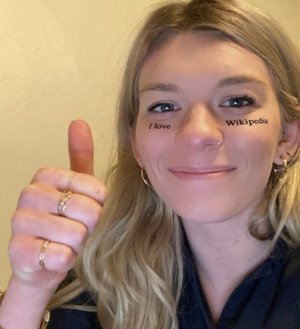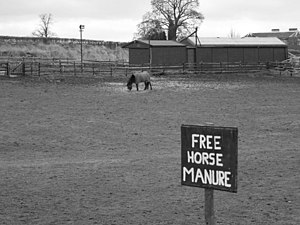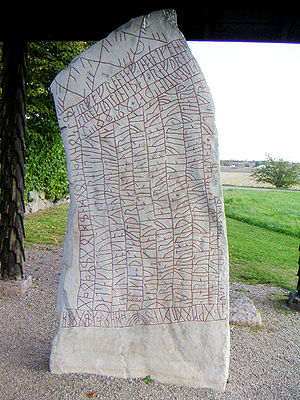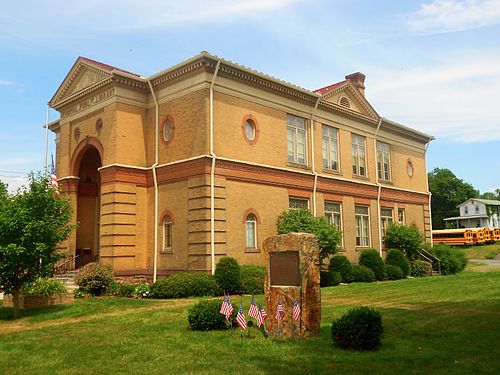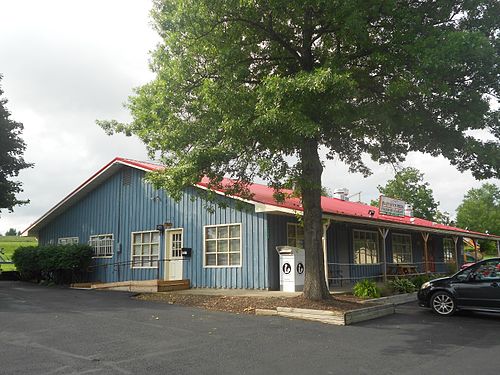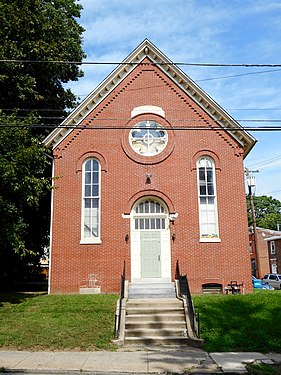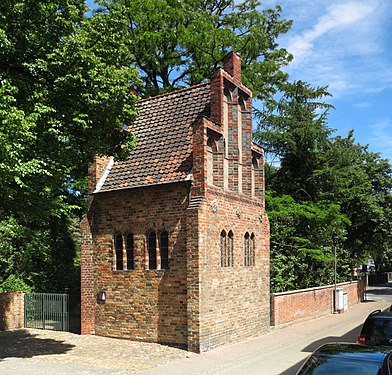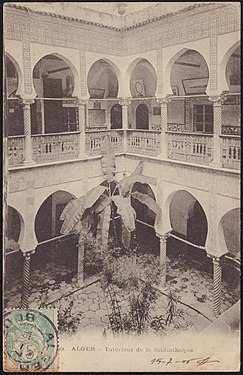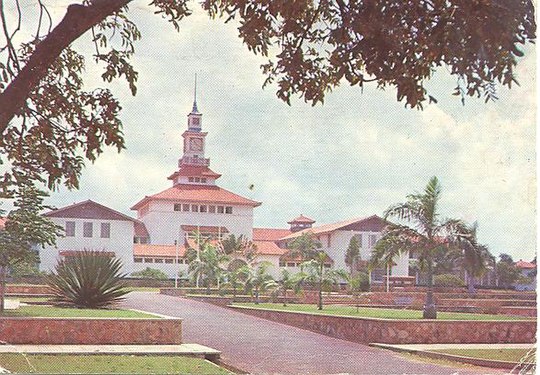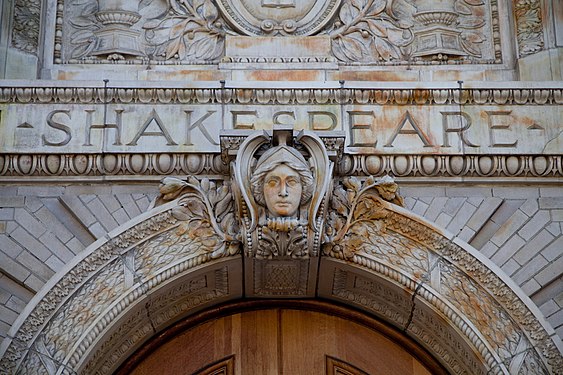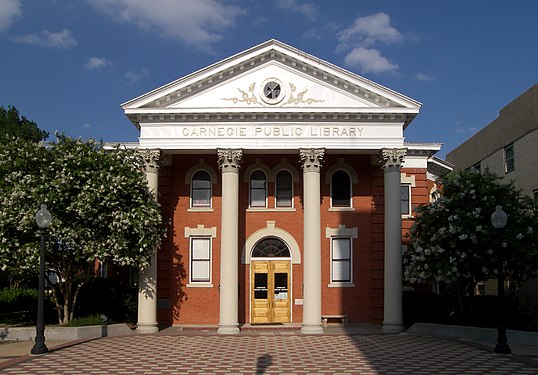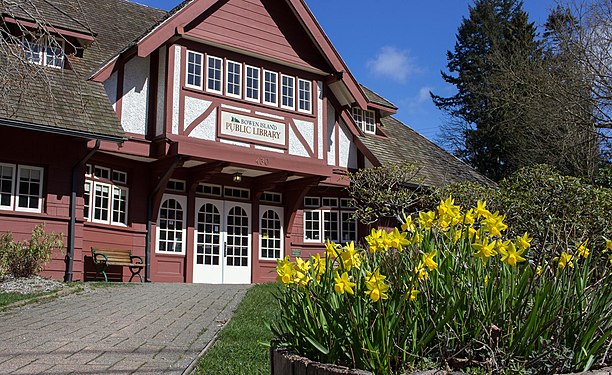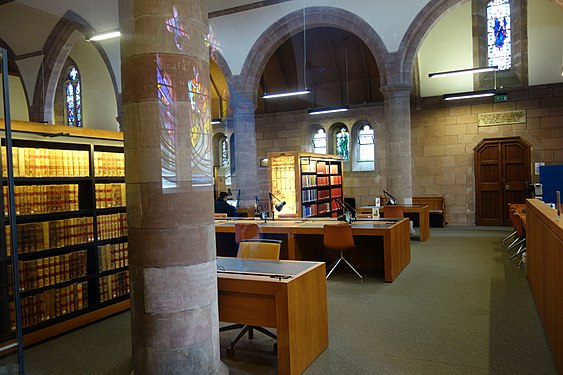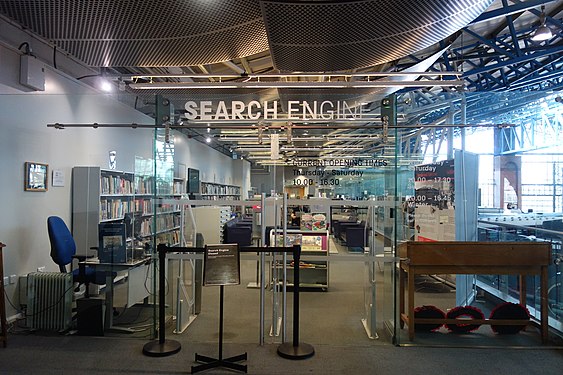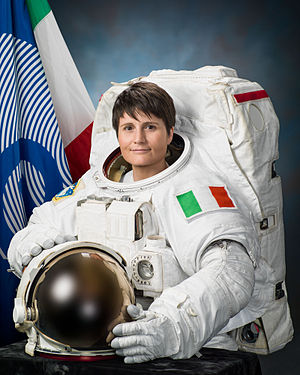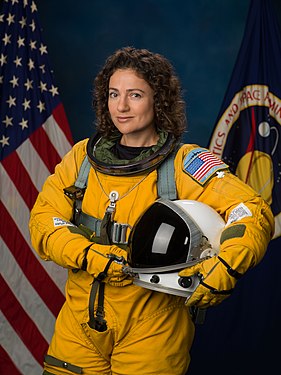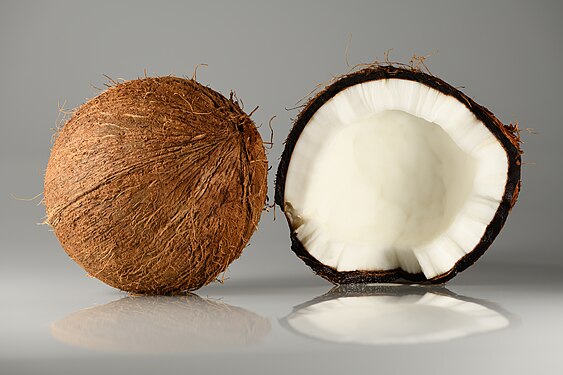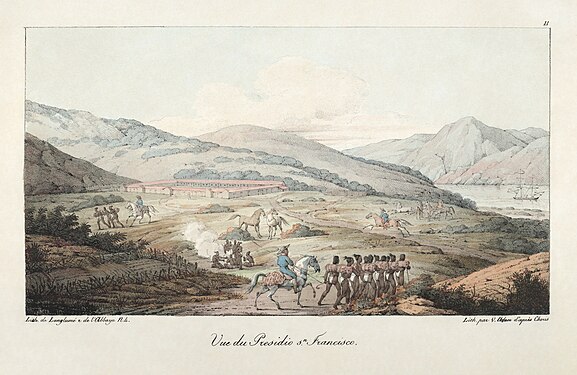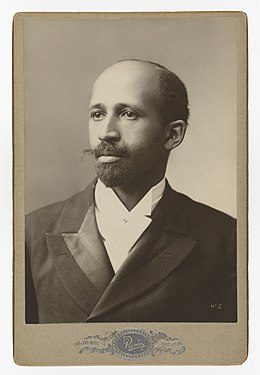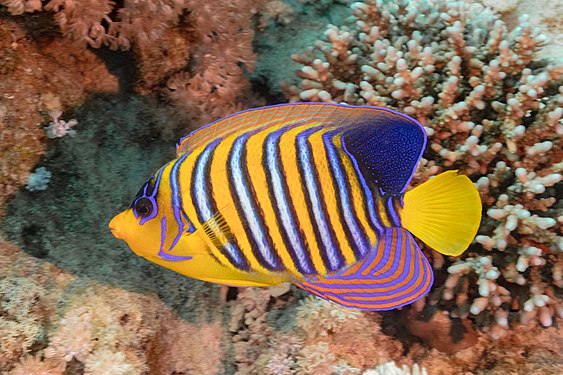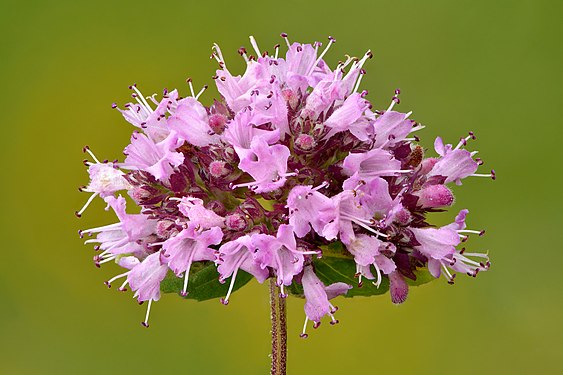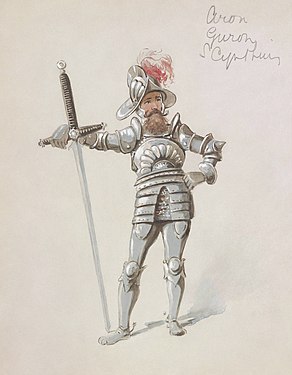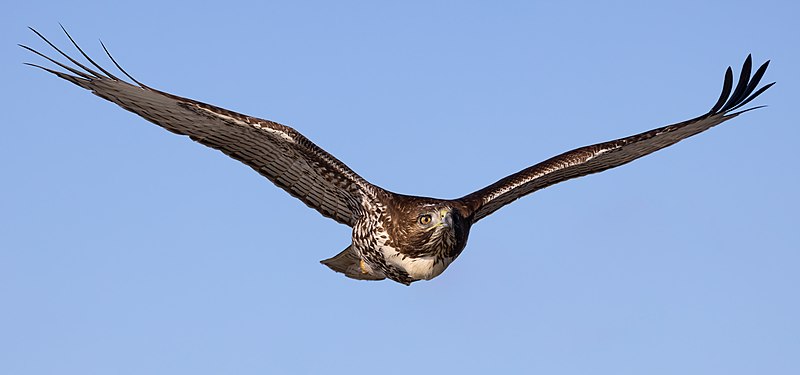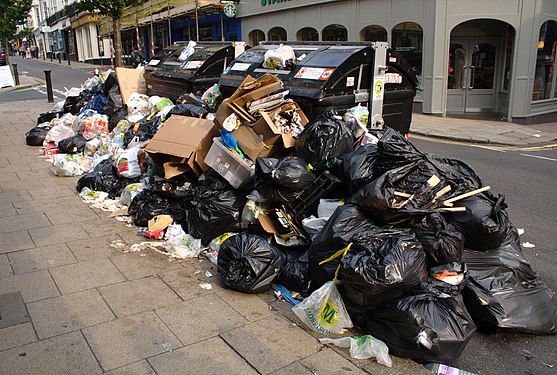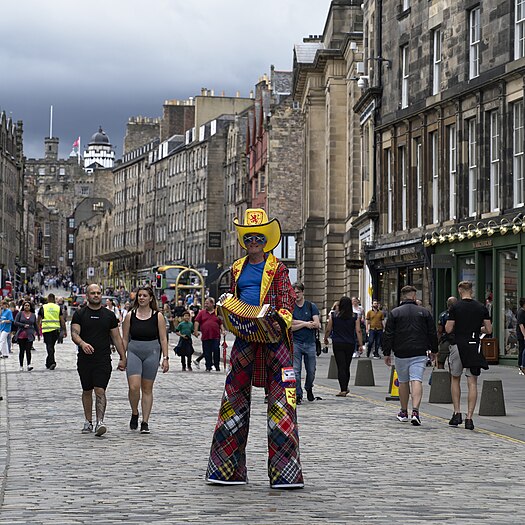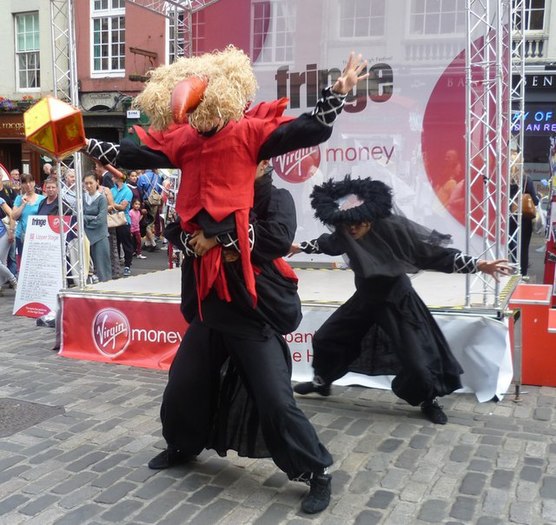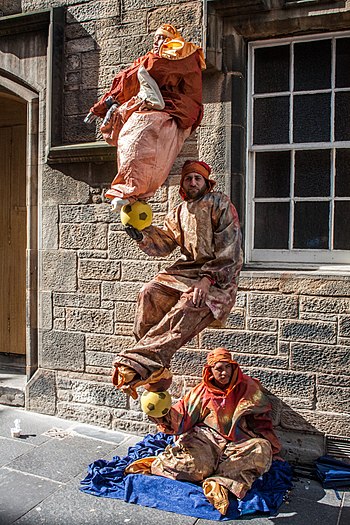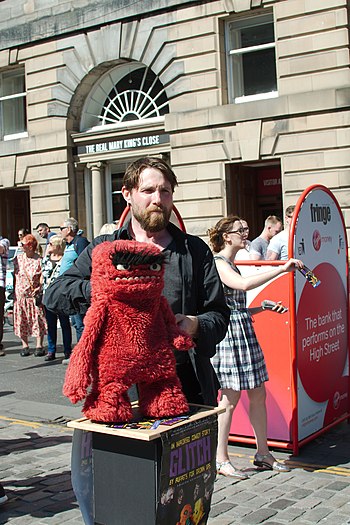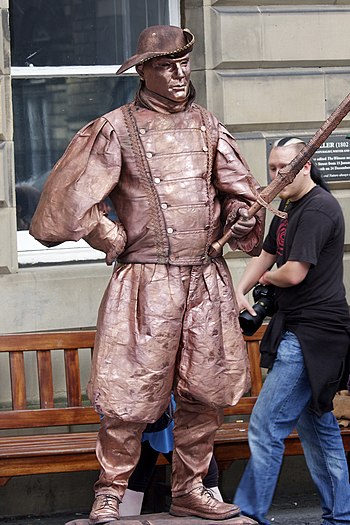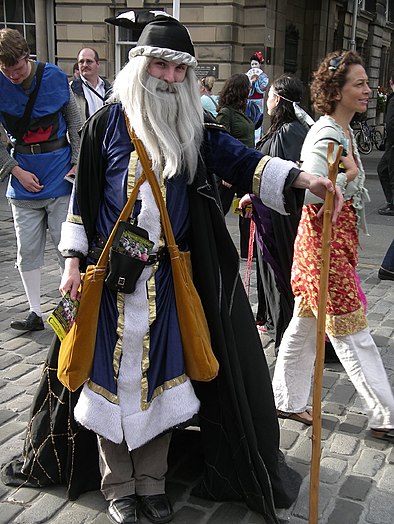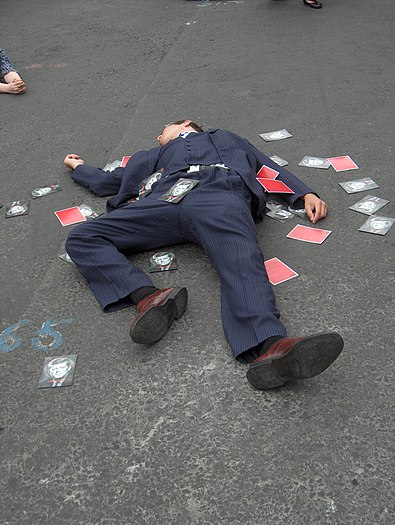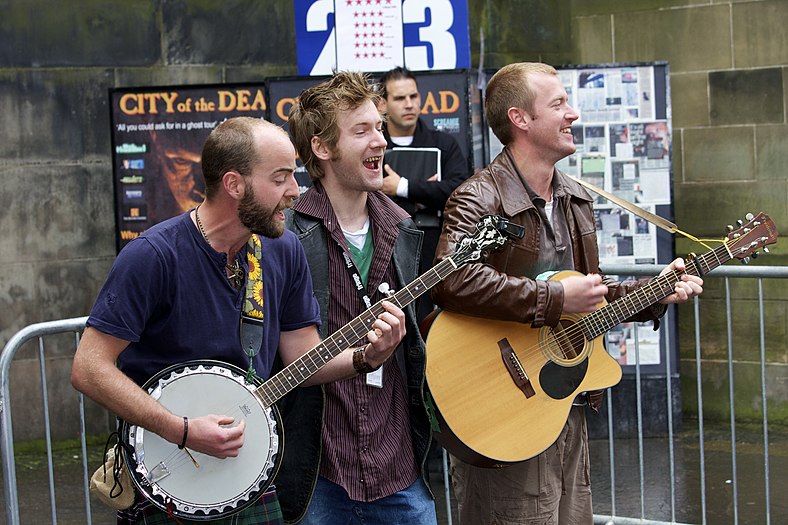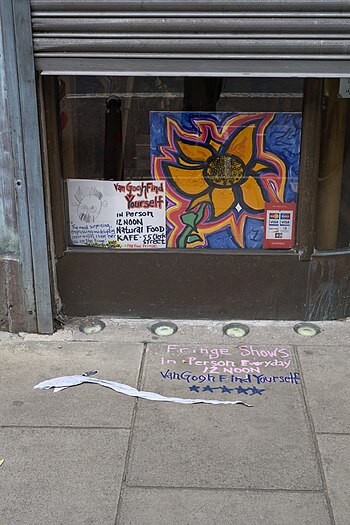Admins wanted on English Wikipedia, IP editors not wanted on Farsi Wiki, donations wanted everywhere
Wikimedia Foundation's email fundraising campaign about to kick off
The Wikimedia Foundation will start sending out its English fundraising emails to donors in Australia, Canada, Ireland, New Zealand, the UK, and the US from 6 September. According to samples of the emails provided by the WMF on Meta, each email features a photo of Jimmy Wales and gives "[email protected] [email protected]" as the sender's name and email address.
This is what they look like:
The text portions are as follows, respectively:
Email texts
|
|---|
|
From: [email protected] [email protected] My name is Jimmy Wales, and I'm the founder of Wikipedia. In the past, you donated to keep Wikipedia online for yourself and millions of people around the world. Each year, fewer than 2% of Wikipedia readers choose to support our work. You have been one of those rare donors, and for this I want to thank you warmly. I'm grateful you agree that we can use the power of the internet for good. We will achieve this not as individuals, but as a collaborative movement of knowledge seekers. Together, we can rebuild trust in the internet, and by extension, in each other. Will you renew your solidarity with a donation? This is awkward to admit, but I have to be honest: 98% of our readers don't give; they simply look the other way when we ask for an annual donation. We choose not to charge a subscription fee, but that doesn't mean we don't need support from our readers. We don't send a fundraising email every month. We respectfully ask for just one donation this year so that Wikipedia may continue to move forward and offer knowledge to the world. If all our past donors gave a small amount today, our fundraiser would be over. Unfortunately, most people will ignore this message. We have no choice but to turn to you: please renew your gift to ensure that Wikipedia remains independent, ad-free, and thriving for years to come. We're a non-profit. That means we aren't selling the articles that millions of people read on Wikipedia each day. We don't profit from the knowledge you seek. In fact, we firmly believe that knowledge should exist outside of the realm of supply and demand. That's hardly a given nowadays; so much of the world's digital knowledge is driven by profit. Wikipedia is different in that it doesn't belong to the highest bidder, the advertisers, or corporations. It belongs to you, the readers, editors, and donors. You're our community, our family. You're the reason we exist. The fate of Wikipedia rests in your hands and we wouldn't have it any other way. It's readers like you who safeguard our non-profit mission. You help us maintain our integrity, quality, and accessibility. Today, please consider giving again, or even increasing your gift, to keep Wikipedia free and independent. Thanks,
Where will your donation go? 42% of your gift will be used to sustain and improve Wikipedia and our other online free knowledge projects. 31% of your gift will be used to support the volunteers who share their knowledge with you for free every day. 27% of your gift will give the Wikimedia Foundation the resources it needs to fulfill its mission and advance the cause of free knowledge in the world. From: [email protected] [email protected]
Bronze Badge / Silver Badge / Gold Badge / Platinum Badge When you gave in the past, you were one of those rare donors who kept Wikipedia thriving for yourself and millions of other readers. Ready to earn your next badge? Please match your last gift today. I took the liberty of emailing you a second time on behalf of the Wikimedia Foundation (the organization responsible for the protection of Wikipedia), because I wasn’t sure you got a chance to read the first email we sent to [email protected], the address we have on file for you since your last gift. I hope this badge will act as a reminder of how crucial your commitment to supporting free knowledge has been and still is to us. At every turn, we have been pressured to compromise our values, but I'll be honest: This isn’t negotiable for us. People always ask us, why not just run ads to make revenue? Or capture and sell reader data? Or make everyone pay to read? While these things seem like the norm online nowadays, we'd like to remind you that there is another way—a way that doesn’t jeopardize the neutrality of our content and threaten your personal data. We just ... ask! Not often, but it works. After 21 years of saying no, I can still say we are proud to have left that money on the table. We’re a non-profit. Only 2% of our readers give, but we manage to serve hundreds of millions of people per month. Imagine if everyone gave? We could transform the way knowledge is shared online. I've been happily stunned by the response from our donors, but we haven't reached our fundraising goal and we don't have a lot of time left. We’re not salespeople. We’re librarians, archivists, and information junkies. We rely on our readers to become our donors, and it’s worked for over 20 years. This year, please consider making another donation to protect and sustain Wikipedia. We know people’s circumstances have changed a lot in
the last year. Some find themselves with less to spare, but
a lucky few happen to have a bit more. If you’re one of
the lucky ones, will you give a little extra to keep
Wikipedia growing?
Renew your donation
Give 5
Give 20
Give 35
Give another amount
Any gift will unlock your next badge. Thank you, DONATE NOW
From: [email protected] [email protected] I know you've heard from me twice already, so I'll get straight to the point. In the past, you were among the extremely rare readers who made a donation to invest in the future of free knowledge. If you've made it far enough to open this email, could you take a minute to help us out? Many of our readers see our emails and think they'll get round to it later, but life happens and of course they forget. Our annual email fundraiser is coming to an end, so if you've been holding off until “later”, this is your moment. I'm asking you respectfully: Please, renew your donation; it matters. Around the time our fundraising campaign starts, I hear from friends, family, and long-lost classmates who see our fundraising messages while they're looking something up on Wikipedia. It's a reminder of how many folks, from all walks of life, rely on Wikipedia. This incredible public support is crucial for our organization and our movement to thrive. It allows us to serve the world, and to do so with independence and integrity. We don't belong to anyone, because we belong to everyone. You donated in the past and we sincerely thank you. If you still see value in Wikipedia, please sustain your support in 2022 and keep Wikipedia thriving. This is our biggest fundraising moment of the year. It's when we launch the online campaign that brings in donors who will propel us throughout 2022 and beyond. I'm one of them. I'm a regular donor. We are the non-profit that supports one of the world's most visited websites. We don't generate revenue by selling off our users' data to the highest bidder. We don't run ads that could jeopardize the integrity and neutrality of our content. Though our size requires us to maintain the server space and programming power of a top site, we are sustained by the support of our donors who give an average of about $16. This year, will you take one minute to keep our work going? 5 / 20
35 / Other Renew your donation Give less this yearThank you, DONATE NOW
|
(In addition to the texts shown above, each email also has small print explaining how to unsubscribe.)
The English email campaign will run until 20 November. It will be followed by the annual banner campaign for these countries, which this year is scheduled to run from 29 November to 31 December.
- The content of the above emails is currently being discussed at the Village Pump: WP:Village pump (proposals)#Review of English Wikimedia fundraising emails. The discussion was started by the author of this article. – AK
Farsi Wikipedia blocks IP editing for six months; blocks and reversions fell, but so did total contributions
An experiment was conducted on Farsi Wikipedia between October 20, 2021 and April 20, 2022 in blocking IP edits to mainspace.
The study concluded that "the restriction on Farsi effectively reduced vandalism on the wiki. We can say this based on the fact that reverts were down 68% compared to the previous six months and down 70% compared to same time period last year. Blocks were also down by over 50% in both comparisons."
But the restrictions were not without negative consequences: "[T]he restriction also prevented good-faith edits. The total number of content edits was down 24% compared to the previous six months."
See related Signpost coverage, "Portuguese Wikipedia bans IP editing" (November 2020). – B
Administrators up, no down, wait what?
In a Special report almost exactly three years ago, we reported on how a then-new active admin low count of 500 was of concern. Since then, the English Wikipedia community has hit significantly lower counts of active administrators in a calendar year, shown here:
- In 2019, 493 active administrators on 10 December
- In 2020, 493 active administrators again on 25 October
- In 2021, 460 active on 5 December[a]
- In 2022 so far, 449 active on 4 April, an all-time low
When the active count recently fell again to 452 on 13 August, it looked like we were close to hitting another all-time low. However, since then, the active count has rebounded somewhat, and there has been a nearly simultaneous recent run of successful Requests for adminship. 2022 is already up by two from last year's all-time low of just seven successful RfAs in a calendar year. So, is it good that we're not at all-time lows for the admin corps? Or is it bad that we are close? Are we on an improving trajectory yet? Or are we seeing admins "walk away in silence" as it was put by an Administrators' noticeboard commenter on an action by Arbcom this March? Only time will tell. – B
- ^ discounting some data glitches in September
Open letter to WMF asking for PageTriage updates attracts several hundred signatures
An open letter from the English Wikipedia's New Page Review (aka NPP) has attracted well over 400 signatures in support from Wikipedians over the past month. The open letter asks the Wikimedia Foundation to allocate resources to the maintenance of the PageTriage software, something the Foundation has been unwilling to do.
PageTriage, the suite of NPP tools comprising the New Pages Feed and Page Curation used by New Page Reviewers, is an important firewall against inappropriate new pages and also used to encourage users to improve their article submissions. NPP volunteers say the software is essentially unmaintained by the WMF, who created it in 2012. Dozens of Phab reports for bugs and upgrades are stalled at "unassigned" or "needs triage". Active reviewers (only around 100 out of about 750) are at present unable to keep the backlog at a sustainable level, and software improvements are urgently required.
Editors interested in helping with NPP can check the criteria, read the tutorials, and apply at PERM for access to the tools. New Page Patrol even provides a school for reviewers. There is a particular need for reviewers who can accurately judge the quality of foreign-language sources.
- The open letter and its signatories to date can be viewed at Wikipedia:New pages patrol/Coordination/2022 WMF letter. – AK
Brief notes
- New Movement Strategy Forum: The Movement Strategy and Governance (MSG) team at the Wikimedia Foundation launched a proposal for a new Movement Strategy Forum (MS Forum) on 24 May 2022. The proposal was open for a 2-month community review period, ending on 24 July 2022. During that time, the MS Forum was operational for community members to try it out. A report on the community review is now available on Meta-Wiki. The feedback received on the MS Forum ranged from very supportive to cautiously accepting. The forum's automatic translation capabilities were particularly well received. Outside of the MS Forum, several long-term Wikimedia contributors criticized the creation of a new space, preferring to focus on the use of Meta-Wiki. The MSG team has committed to the long-term maintenance of the MS Forum and its integration into the Movement Strategy processes and will announce a call for new moderators and administrators.
- New user-groups: The Affiliations Committee announced the approval of this month's newest Wikimedia movement affiliates, the Tyap Wikimedians User Group and the Women in Religion User Group
- New administrators: The Signpost welcomes the English Wikipedia's newest administrators: DanCherek (9 August), DatGuy (15 August), Femke (18 August), and Z1720 (29 August).
- Milestones: The following Wikimedia projects reached milestones this month or last:
- 500,000 articles: Turkish Wikipedia
- 50,000 article: Ladin Wikipedia
- 5,000 articles: Tumbuka Wikipedia
- 2,000 articles: Dagbani Wikipedia
- Wiki Loves Monuments 2022 in India: This year's edition of the contest runs from 1–30 September.
- Articles for Improvement: This week's Article for Improvement is cartoonist (29 August – 4 September), to be followed by gender studies next week. Please be bold in helping improve these articles!
- Wikipedia for Improvement: The Scots Wikipedia is having a September Writin Drive. Its aim is "to fix all of the bad Scots Wikipedia articles, help out the site's admins by teaching them proper Scots, and generally improve the quality of the Wiki." (See prior Signpost coverage "Scots Wikipedia language quality problems ripple around the Internet...")
Wikimania 2022: no show, no show up?
Rising costs, the COVID-19 pandemic, and now a software disaster: Wikimania, the annual main conference of the international Wikimedia movement, is in deep trouble. How could that happen, and what conference do we actually need?
"Wikimania: The Festival Edition!"

If you own a dog, you will surely have walked it with a smartphone in your hand at some time. But as part of an online meeting, together with other dog owners? In 2022, the most important conference of Wikipedians made it possible.
Wikimania 2022 was supposed to be a very special festival: fewer presentations than last year, more group contributions and workshops, and only three tracks so that attendees would not be spread out over too many programmed events, resulting in larger audiences per events.
Additionally: watch outdoor games, talk about a selected dish from a specific country, dance and sing! Visitors would feel that they are spending fun time together.
When I saw the software for the first time, Pheedloop, I was excited. A neat and tidy user interface with many features including quite some customization: for the visually impaired, for people suffering from attention dysfunctions, for everybody. With a high chance that your language of choice would be available. Options for managing your personal schedule. Notifications, chat opportunities, mobile versions for Android and iOS...what could possibly go wrong?
"I have never attended a Wikimania that was such a disaster!"

It turned out that the software was not that perfect. For example, on the smartphone app, used with a tablet, scrolling did not always work; so I could only select a language from the upper half of the list (mais oui!). But the most important software failure was the video streaming. Especially on the first and second days, many programme items would not start, or started late, or the speaker could not hear anything, or they were cancelled altogether.
I still don't know whether Pheedloop was supposed to be the streaming platform itself, or whether it was only a platform to embed streaming/videos from YouTube, Zoom or Jitsi. You had to deal with two frames, the Pheedloop frame and the YouTube/Zoom/Jitsu frame. Links and embedding often didn't function properly. Sometimes clicking here and there worked, sometimes not. And usually, you had to operate several windows. The chat function on YouTube was deactivated; commenting was possible only via Pheedloop. Notes? Open a browser, use Etherpad!
A well-known Wikimania veteran from the US put it this way: he'd never before attended a Wikimania that was such a disaster.
Time investment? Revenue?


According to the Pheedloop counter, there were only about 300–450 attendees online at any time. A typical programme item saw 15–40 attendees. Maybe many visitors were frustrated by the technology, but there were other issues as well. For example, although the chat function for group chats worked really well, only very few people came to the group chats.
Reducing the number of programme items obviously did not make more participants visit the conference. And ...
- if you had no dog, were not interested in watching other people eat, did not want to listen to music etc.,
- considering that many items were cancelled (for technical or other reasons),
- if some items were too difficult or specific for you,
- and also given that there were no famous keynote speakers,
...then there was not much left to attract you to Wikimania 2022.
Few speakers means that few people drag their friends and fans to the conference. Not much hoopla on social media. According to the discussions at the Kurier magazine on the German Wikipedia, many Wikipedians glanced over the programme, picked a handful of items and only logged in at the given time of an event. Or they decided to watch the video later on YouTube.

And indeed, some of the programme items turned out to be a less than perfect experience. Some contributors had announced a workshop but actually delivered simply a one-directional presentation. Quite a few speakers read out a text. It was also remarkable how many contributions were labelled ideal for newcomers, although they were very unsuitable for beginners – for example, complicated discussions about UCoC enforcement. One 'workshop' (in reality just a presentation) was even labelled as ideal for newcomers and as a master class as well.
How to move on?

It is a huge challenge to organize a good online meeting. Ever since the first Star Trek movie in 1979 we have known that it is not very entertaining to watch grumpy people in confined spaces who are looking at screens.
Before organizing such an online event again, we as a movement should answer some questions.
What platform or combination of platforms serves our needs best? I understand why Pheedloop was selected, but even if it had worked better, I think we could improve the experience, especially for visitors using a smartphone. Streaming and chat should be possible on the same platform, for example.
What kind of programme items can attract many attendees and make them stay a little bit longer thereafter? Think of a shopping mall, where huge, so-called magnet stores lure the potential customers into the building and then also make them visit other, smaller shops. An online conference can benefit from a flashy kick-off event, maybe with a comedian who explains the software and the programme in an enjoyable way. Keynote speakers and similar attractive programme items should be scheduled in a way that visitors may want to stay longer (i.e. at the beginning of the day rather than at the end).
What kind of programme serves which types of target groups? An international online meeting should concentrate on topics that are relevant to a larger group of people from different parts of the world. So, a programme item should not be too closely related to one country or culture, or be too specific thematically. For example, I am looking forward to a presentation (plus question time) that informs non-Wikidatans of how Wikidata has progressed the previous 365 days. Other Wikidata-related contributions are generally better reserved for a dedicated Wikidata meeting.
Is Wikimania primarily a meeting for the movement, or a meeting for newcomers and partners of the movement? In my humble and personal opinion, it can work for either purpose, but maybe not for both simultaneously. Make up your mind and then create a meeting that is perfect for the target group selected. All other people are welcome, of course, but have to understand the chosen nature of the conference.
And yes, I take it personally when a contributor calls a presentation ideal for newcomers that is clearly not.
Truth or consequences? A tough month for truth
Rauwerda named "Media Contributor of the Year"
Annie Rauwerda, who is best known for her Instagram account depths of Wikipedia, was named "Media Contributor of the Year" as part of the Wikipedians of the year awards at this year's Wikimania and by Diff. She has also been named five times in this column for her work and for the extensive news coverage of her work by National Public Radio, The New Yorker, The New York Times and many others – including this ABC News Nightline report today. We heartily concur with the award and send our congratulations. – S
Wikipedia biography allegedly used for fraud
The Buffalo News reports that the Wikipedia biography of Darin Pastor was allegedly used by Pastor and a partner, Halford W. Johnson, as part of a scheme to defraud nearly 100 investors.
Their audacious lies, according to prosecutors, stretched around the world, from a purported deal to buy livestock from companies in Kenya and Somalia to sell to companies in Oman, to fraudulent gold deals with companies in Hong Kong and Australia. A gas-to-liquid-fuel plant peddled to investors with annual $1 billion revenue projections was lifted entirely from a PowerPoint presentation an Arkansas business group pitched to them. Prosecutors said Pastor and Johnson's intentions were as false as the Wikipedia page Johnson created to entice investors ...
A report by the United States Department of Justice states,
Pastor and Johnson maintained an online Wikipedia page for Pastor that misrepresented his net worth, and[,] in soliciting investments in Capstone, encouraged potential investors to research Pastor online. Pastor actually had a negligible net worth and was millions of dollars in debt. While investors believed their money would be used to fund Capstone’s business deals, millions of dollars were used to pay for Pastor’s personal expenses and to fund a lavish lifestyle for himself and his wife ...
Darin Pastor's article, created in 2013 by a single-purpose account, User:KCDPR (later renamed to User:D Pastor2014) was discussed at the WP:BLPN noticeboard after the publication of the above articles. – AK
Did Chancellor candidate remove an inconvenient truth?
On Tuesday August 30, a section in the article Kwasi Kwarteng was removed. The Labour-aligned tabloid the Daily Mirror and the Conservative The Spectator soon reported that the edit had been made from the UK Houses of Parliament, suggesting that Kwarteng was responsible for the edit, while not directly accusing him.
Kwarteng is the leading candidate for Chancellor of the Exchequer, the second most powerful position in UK government, if Liz Truss becomes prime minister. The Daily Mirror is not considered a reliable source by many Wikipedians. The Spectator has been a weekly fixture in British publishing since 1828.
The section deletion was reverted after one minute. A Twitter account announced the deletion five minutes later and an additional sentence was added to the article after another 5 minutes:
On 30 August 2022, this section was removed from Kwarteng's Wikipedia entry, with it being revealed that an IP address from the House of Commons had removed it.
This edit was itself soon reverted and over the rest of the day over 40 edits were made concerning these two edits. As with almost any edit on Wikipedia, it can be almost impossible to identify the person who made it. While it might have been made by a Kwarteng staffer, it also might have been made by one of his political opponents, Labour or Conservative, or indeed by anyone with access to the parliamentary internet system. – S
Alan MacMasters did not invent the electric toaster
A longstanding Wikipedia hoax was reported by the abovementioned Annie Rauwerda in Input, a digital magazine covering culture. Rauwerda said that a hoaxer had claimed that a Scot named Alan MacMasters invented the electric toaster in the 1890s, apparently learning of the hoax from a blog post on Wikipediocracy, an online forum critical of Wikipedia.
The hoax was first introduced to Wikipedia in 2012 in an edit to the Toaster article and later expanded into an Alan MacMasters biography. In a classic case of citogenesis, many credible media sources subsequently copied the hoax, including the Daily Mirror in 2012, the BBC in 2013, and The Scotsman's "Scottish Fact of the Week" in 2014, which in turn all eventually ended up used as sources to bolster the fake biography. The hoax made its way into children's books about history published by Penguin Random House and Dorling Kindersley as early as 2016. Google to this day answers the question "Who invented the electric toaster" with "Alan MacMasters", citing the website of the Hagley Museum and Library.
The Alan MacMasters article was nominated for deletion by Mangoe after its dubiousness was pointed out in a post on notorious forum Wikipediocracy by user "tarantino", and the article was removed from the English Wikipedia last month, but at the time of writing Alan MacMasters still lingers in one form or another in about a dozen other Wikipedia language versions. – AK, B
Why does Wikipedia need so much money?
A topic the Signpost has banged on about at great length, this is the question asked by Distractify in a piece that
- vastly underestimates Wikimedia Foundation salaries (the Foundation's 2020/2021 salary costs were $68M for employees alone (excluding contractors), so an average salary of $65,000 per head would require about 1,000 employees, two or three times the number the Foundation actually had),
- correctly notes that WMF assets went up by over $50 million in the 2020/2021 financial year and that the Wikimedia Endowment reached its $100M target five years early, and then
- proceeds to present a Sue Gardner quote from 2013 ("I believe that currently, too large a proportion of the movement's money is being spent by the chapters. The value in the Wikimedia projects is primarily created by individual editors: individuals create the value for readers, which results in those readers donating money to the movement ... I am not sure that the additional value created by movement entities such as chapters justifies the financial cost, and I wonder whether it might make more sense for the movement to focus a larger amount of spending on direct financial support for individuals working in the projects.") as something she said last year.
As this article by a media outlet that is cited several hundred times as a reliable source in Wikipedia illustrates, the quality of media reporting on Wikipedia remains very patchy. – AK
Surprise! There's vandalism on Wikipedia!
Conor McGregor was declared dead on Spanish Wikipedia, then by Google, leading to complaints on non-Wiki social media, and finally at least three sportswriters reported that the well-known UFC fighter was alive and that the report was all Wikipedia's fault. Normally, in a case like this we'd expect that a vandal added the fake death, was reverted ten minutes later and that the press didn't have any real story to report so tried to shock their readers with a super-scoop "Surprise! There's vandalism on Wikipedia!"
The press did miss the major part of the story here, but we were likely the most surprised of all. The level of vandalism on the Spanish Wikipedia is many times worse than anything ever seen on English Wikipedia. A death date was inserted by an anonymous (IP) editor, but rather than being reverted within ten minutes, the death date was modified, reverted, reinserted and re-reverted in a game of IP hot potato that lasted several weeks. Between June 15 and August 22 there were 51 edits to the article by 21 editors, 38 (74.5%) of the edits made by IPs. Good faith edits were in short supply: only one of the IP edits seemed to add actual meaningful content. Six edits were made by the three registered users, and seven were reversions made by a bot. The changes made over the 51 edits were limited to a couple of minor content changes, an added reference or two, and minor wording changes.
So who is responsible for the vandalism? Certainly the IP editors, but perhaps a systemic fault lies with the Spanish Wikipedia which might have too few recent changes patrollers, inferior software tools for patrolling, or just too many IP editors. – S
Chocolate, peanut butter, and horse manure
The Search Engine Journal seems to be better informed about Wikipedia policies against using our encyclopedia for advertising and other conflict of interest editing than they have been in the past. In "Wikipedia And SEO: Everything You Need To Know", they accurately describe our policies and guidelines on notability, neutral point of view, no original research, verifiability, reliable sources, and spam. They do take some liberties with "no firm rules", not mentioning that the purpose of occasionally ignoring rules is to improve the encyclopedia, not to improve their bottom line.
They do understand that linking to Wikipedia articles is not going to improve their clients' ranking in Google searches. They also seem to understand that stealing links in Wikipedia articles isn't going to improve the rankings either. They even wax poetic about how well Google and Wikipedia complement each other – just like chocolate and peanut butter, they say. So what can SEO firms add to the mix? Horse manure; a rather untasty addition.
They suggest replacing dead links in Wikipedia with links to their clients' websites, not so much to improve search ranking, but only because a bit of extra traffic to the sites never hurts anything. They suggest that you work with an experienced Wikipedian to write an article about a client's firm, but that you should, "Just be careful to avoid being labeled as spam".
So what have they forgotten to mention? Just two small things: our policy that paid editors must declare their clients and employers and that you must be here to improve the encyclopedia. – S
Jimmy Wales interviewed by WION
Indian outlet WION featured an exclusive interview with Jimmy Wales: Wikipedia founder sees enormous potential in India; brushes aside Elon Musk's criticism. Wales discussed the increasing number of Indian volunteers:
The country is home to almost 65,000 contributors – representing almost a fifth of the total number of Wikimedia volunteers. Wikipedia is currently available in 25 of the languages spoken across India, including Bengali, Hindi, Marathi, Punjabi, Odia and Telugu and even endangered and tribal languages like Tulu and Santali. In addition to these Indic languages, India recently became the country with the second largest population of contributors to English Wikipedia after the US.
Asked about the success of the recent Indian fundraising campaign (see previous Signpost coverage), Wales said:
Wikipedia is one of the world’s most visited websites, yet many people don’t know that it is hosted and operated by the nonprofit Wikimedia Foundation. Unlike other top websites, we rely on donations to support Wikipedia and Wikimedia projects, with the average donation being about US $15. I’ve always hoped that if we build something people care about and value, then they will want to support it.
Wales rejected criticism from Elon Musk that Wikipedia was losing its objectivity. Asked about cyber warfare in the context of global conflicts, Wales said that while Wikipedia has good mechanisms in place to counter bias, disinformation campaigns –
– AKare also becoming increasingly more sophisticated and difficult to spot. Because of this, the Wikimedia Foundation is also investing in its capacity to respond to disinformation threats and support volunteers. An example of this was the task force the Foundation prepared ahead of the 2020 US presidential election. Foundation staff worked for hand in hand with volunteers to establish clearer lines of communication between volunteers and staff to surface and address disinformation attempts, conducted research to better understand how disinformation could spread on Wikimedia projects and built new tools for volunteers to evaluate potentially malicious edits and behaviour on the site.
In brief
- Interview with Wikimedia CEO Maryana Iskander: Africa.com has a Q&A with Maryana Iskander answering questions about the Wikimedia Foundation, its role in Africa and the recent Wikimania conference.
- A defining moment: USA Today fact checks a claim that Wikipedia changed the definition of "definition" recently, backed up by an apparently photoshopped page history screenshot. In its most extreme form, the hoax said that U.S. President Joe Biden ordered the change. USA Today stated that our "definition" definition had not changed in the last six months: They checked the edit history, and further compared it to two dictionaries, showing our definition is (and has been) similar to other reliable sources.
- Where's the reliable source? Tom Springfield, a musician, songwriter, and producer in the 1960s, and a very private person since 1970, died on July 27 but his death was not reported until August 21 in the Australian ABC and other sources. In the meantime word unofficially leaked out until an anonymous editor using the IP address of Springfield's solicitor made a quickly reverted death announcement in the Wikipedia article. See Talk:Tom_Springfield for commentary on the situation. See here and here if you are a seeker of the truth.
- In age of misinformation, group of North Carolina residents keeps Wikipedia (mostly) correct – the North Carolina Wikipedians (story originally by The News & Observer, Raleigh, North Carolina, widely syndicated [MSN, etc.])
- Ukraine–Russia on-wiki battle over identity of assassin: Ukrainska Pravda via Yahoo! News. The Signpost found that the article about the supposed assassin of Darya Dugina was removed from Russian Wikipedia following a brief deletion discussion.
- Russian Wikipedia alternative appears and disappears: Former editors of the Russian Wikipedia have launched a Russian analogue named "Runiversalis", reports Bulgarian news outlet Novinite. The Runiversalis project stated that its main task would be to edit "in accordance with the requirements of Russian legislation and with respect for traditional values", but its site was inaccessible again a day after its launch, according to the Novinite report. The Wikimedia Foundation reportedly "distanced itself from both the project and the Russian editors".
- The Runiversalis article in the English Wikipedia is currently subject to a deletion discussion.
- Are you gobsmacked or discombobulated by supercalifragilisticexpialidocious? The Wednesday Journal will get you recombobulated with the help of Wikipedia.
- "Recession" media coverage continues. We discussed this at length in last month's issue, but it's not stopping. Here's a sample of the new coverage it's gotten: The Hill, Fox Business, Bloomberg, MarketWatch, Entrepreneur, Yahoo! Finance, The Telegraph, Slate etc.
- Wiki court articles repeated by courts: The Washington Post and Slate also cover one of July's hot stories in August (see related coverage in previous issue of The Signpost).
Boarding the Trustees
- This report was written with the assistance of GPT-3, OpenAI’s large-scale language-generation model. More information on Signpost GPT-3 articles can be found here. Upon generating draft language, the author reviewed the text and takes ultimate responsibility for the content of this publication.
This month's discussion report is shorter than usual, but not for lack of trying.
Vote in the Board of Trustees elections!
The Community Voting period for the 2022 Board of Trustees election is now open. Here are some helpful links to get you the information you need to vote:
- Try the Election Compass, showing how candidates stand on 15 different topics (see below)
- Read the candidate statements and answers to Affiliate questions
- Learn more about the skills the Board seeks and how the Analysis Committee found candidates align with those skills
- Watch the videos of the candidates answering questions proposed by the community
If you are ready to vote, you may go to SecurePoll voting page to vote now. Voting has already started and ends on September 6 at 23:59 UTC. To see about your voter eligibility, please visit the voter eligibility page. Thanks for your participation in selecting a representative Board of Trustees!
Election Compass statements
An "Election Compass" has been made available to support the community members in the selection process. The Election Compass is based on the open source project called "Open Election Compass", whose source code is publicly available. The tool has been widely used also in other contexts, e.g. by media pages for the German parliamentary elections in 2022. Every member of the community was requested to submit statements within the larger scope of the Board of Trustees. Following the period of proposing statements, community members upvoted the declarations they considered as the most distinct and therefore useful in learning about the candidates' positions. The last 15 statements were chosen by the Election Committee.
Ongoing discussions
- Review of English Wikimedia fundraising emails (see News and notes)
- Reliability of Fox News for politics and science
- Process for changing Wikipedia's default appearance (see Technology report)
- Open letter to the WMF about new page patrol (see News and notes)
- Reliability of Royal Central and one of its authors
- Appearance of the external links icon
18 years a Wikipedian: what it means to me
- This article was first published on wikiedu.org on August 26, 2022 (licensed CC BY-SA 3.0).
I’ve been a Wikipedian for 18 years. Were it a person, on Friday August 26, my account will be old enough to vote. Over the years, my role has changed from new user to administrator, from pure volunteer to that strange dual role of volunteer editor and Wiki Education staffer. In the last year I experienced an odd identity crisis when the edit count of my work account surpassed that my volunteer account. While my activity waxed and waned over the years, the drive to contribute – to make the internet better by making free knowledge widely available – has remained a constant.
Over those years, Wikipedia has changed dramatically, as has the knowledge environment in which it is embedded.
So many Wikipedians' origin stories include an encyclopædia — maybe bought by parents making a significant financial sacrifice, or an older edition purchased at a garage sale. For me, it was different. I grew up, not just in a world where knowledge was scarce, but also where it was fleeting. I learned about the world through the stories in daily newspapers. Not only did you need to catch it the day it was published – unless, for some reason, you clipped the story – there was no way to go back. Hard facts were only what you captured in your memory, and when people debated what had happened a week or a year or half a decade ago, the only verification was what you remembered.
My perceptions of what was available changed once I went to university, and later to grad school. But even though I knew so much more was available, it still wasn’t accessible. A journal database search was something you needed to request. And whether you read it in a book or a journal, your ability to access a fact depended on the quality of the notes you had taken, and on how well you organized the slips of paper that you worked from.
The Internet changed things, but not always for the better. My first decade online (1994 to 2004) saw the birth of the World Wide Web and the rise of the search engine. Though it was growing explosively, the content that was online represented only a sliver of human knowledge. You could find all kinds of weird and wonderful facts online, but finding the same website twice might be a challenge. And whether to trust this arcanum was an open question.
The early 2000s brought further changes. The rise of Web 2.0 and the blogosphere meant that these websites developed more of an identity. The blogger’s creed — I link, therefore I am — meant each blogger was a window onto a world of other sites, often less popular, less widely read, but more likely to be written by an expert. But these were also the days of the Bush administration and their "post-truth politics". Bloggers were some of the few to challenge the alleged rationale for the invasion of Iraq, but other blogs and websites emerged as cheerleaders for the administration, or as proponents of dodgy ideas like intelligent design or what was then called global warming skepticism.
This was the state of the world when I began to contribute to Wikipedia. The old ethos of "write what you know" was crashing into not just a strengthening verifiability policy, but also a (still nascent) idea that you should include citations and a debate over what constituted a reliable source. Calls to include citations also faced another challenge — for many Wikipedians, sources meant sources that were available online. Even if you did consult a scholarly source, before things like Google Scholar and Google Books the only way to search these sources was something like Web of Science, which were slow and clumsy to navigate (assuming you were fortunate enough to have access to a university library).
In a world like this, with Wikipedia on the rise, knowledge was still fragile. The neutral point of view policy gave amateurs the ability to document what experts said without having to decide which experts were correct. The techno-utopian view that we might be above these debates between scholars makes sense until you realize that you need some way to distinguish between the serious scholars and the cranks. To make matters worse, members of the community might support the cranks, or worse yet — you might be the one who believes the cranks.
The community eventually figured out a lot of this. Addenda like the "due and undue weight" section of the neutral point of view policy were eventually written. As the breakdown of cultural transmission of the norms of the project broke down under the weight of the "eternal September" of 2006 (where the size of the community exploded), more and more policies and guidelines were written down. The adage that policy was "descriptive, not prescriptive" became less and less true. And the encyclopædia became less fragile.
Eighteen years after I first registered my account on the English Wikipedia, I’m amazed at what the project has become. When I started contributing to Wikipedia it was at the front lines of "post-truth politics". Today, not only is it one of the most important sources to combat misinformation and disinformation, it’s also the place where the quality and reliability of sources is debated with more commitment and enthusiasm than anywhere else I’m aware of. It’s far from perfect, it may not even be good enough, but in aggregate, it’s probably the best hope for non-specialists looking for accurate information.
And that is a big achievement.
Thinking inside the box
Optional: Hi! I'm Urban Versis 32. This is my first article to The Signpost. I figured I could write about an aspect of Wikipedia that has not been featured here for a while – userboxes. These are basically rectangular boxes designed to be put on your user or user talk page, and are a great way to display one's interests. Here's an example of a simple userbox:
Overview
There are many different kinds of userboxes. Some are red. Some are blue. Some feature images. Some don't. But they all take that rectangular form, and they work very nicely when put together. On the right, I put together a group of userboxes that could appear on someone's userpage.
You can clearly see the variation. That's why they're useful: there's a userbox for everyone.
To find a userbox, simply go to Wikipedia:Userboxes/Galleries and navigate through the list. If you want a list in alphabetical order, go to Wikipedia:Userboxes/Galleries/alphabetical.
History of the userbox
With a little digging through Wikipedia's archives and discussions –and thanks to some input from users Xaosflux, ZLEA, and Adam Cuerden – I managed to find a basic, semi-detailed history of the userbox.
The early days
Userboxes as we know them first came with the idea to create boxes for Wikipedia:Babel signifying the different languages the user spoke and proficiency level in them, such as the userbox below.
|
Original idea and creation
The earliest userbox-related edit I could find was made by NSR on 2 July 2005, with the edit summary of "box test", when they created the Template:Userbox page. The next creation of a userbox page was Wikipedia:Userboxes, created by Cedrus-Libani on 18 November 2005, which documented some of the earliest userboxes.
Wikiproject userboxes
Then came the proposal by Daykart for a WikiProject for userboxes. This eventually led to the creation of WikiProject Userboxes on 22 December 2005, created and headed by Ian 13. Userboxes were beginning to take off.
Controversies and the Great Userbox War
As userboxes gained more popularity, controversies started to arise, such as the Great Userbox War (GUW). The GUW (circa early 2006) was caused by various factors, but it primarily involved Jimbo Wales desysopping five administrators due to the deleting and undeleting and edit warring of a userbox and a few duplicates of it, all of which stated "This user identifies as a pedophile" (see Signpost coverage).
After the initial controversy, the Arbitration Committee decided to hold a vote to see who was most responsible and to figure out the consequences for the eight main users involved. I won't go into exact details for each user, but here's the basic run-down, with the information gathered from previous Signpost coverage (see the arbitration case for more info):
- Remedies
- El C, who was desysopped in the wake of the wheel war, was resysopped at the end of the case. His only action was to place a retaliation block against Carnildo, who had indefinitely blocked him. El C was also reprimanded for inappropriate use of the sysop powers.
- BorgHunter, who was desysopped in the wake of the wheel war, was resysopped two days after the close of the case. BorgHunter made personal attacks against David Gerard, but later apologized. BorgHunter was also reprimanded for inappropriate use of the sysop powers.
- Carnildo, who was desysopped in the wake of the wheel war, was offered the option to reapply for adminship starting on February 24th. Carnildo blocked three users indefinitely with disputed reasonings. Carnildo was also reprimanded for inappropriate use of the sysop powers.
- Ashibaka, who was desysopped in the wake of the wheel war, was desysopped, but was to regain his sysop powers on February 24th. He was involved in the wheel war, restoring the userbox(en) in question five times.
- Karmafist, who was desysopped in the wake of the wheel war, was desysopped, with the ability to reapply for adminship starting on February 24th. Karmafist undid a block made by Jimbo Wales.
- Dschor was banned for two months, and placed on probation. Dschor had created a new pedophilia template which was seen as purposely inflammatory by the Arbitration Committee. In addition, Dschor was prohibited from creating or editing userboxes, either in template or text form.
- SPUI was banned for ten days, and placed on probation. SPUI created a joke template meant to humorously allude to the userbox, but the Arbitration Committee found it purposely inflammatory.
- Paroxysm was banned for three days. The Arbitration Committee felt that his original creation of the userbox was in good faith, but his recreation under an alternate title was not. In addition, Paroxysm was prohibited from creating or editing userboxes, either in template or text form.
Policies and proposals
This controversy and others sparked debate for more strict rules and policies to be put in place, like the February 2006 userbox policy poll, the May 2006 userbox policy poll, and the "German rule", which duplicated the way userboxes were being managed on the German Wikipedia.
For a time, a list of all userbox nominations at MfD was maintained, although it is now quite out of date.
Recent controversies
There have also been some more recent deletion discussions of userboxes. Three examples help highlight this:
- Wikipedia:Miscellany for deletion/User:FerrousTigrus/ub/non-bias hitler: this discussion deleted four userboxes relating to pro-Hitler and other Nazi beliefs.
- Wikipedia:Miscellany for deletion/User:UBX/onemanonewoman 4th nomination: this discussion deleted a userbox expressing homophobic and anti-same-sex marriage views.
- Wikipedia:Miscellany for deletion/User:Qartagir/Userboxes/Fascist: this discussion deleted five userboxes supporting facism.
Modern userboxes
These controversies, polls, and flamewars eventually gave way to what we know as userboxes. We have userboxes that are very different from each other – from shortwave radio to animal care, userboxes have it all!
|
|
How to use userboxes
Now, how exactly do you add a userbox to your userpage? The simplest way is to copy the link of a userbox from the galleries, and paste it where you want it on your userpage while in "Source" mode. For example, if you copy-pasted {{User wikipedia/Member}}, you would get
| This user is a member on the English Wikipedia. |
Most userboxes are by default left-aligned, though various tricks exist to put them in different locations.
Say you want it in a group, like in the example list of userboxes above on the right. You'd use the following code, but paste it at the top of your userpage:
{{Userboxtop|toptext=Your title here}}
Insert userboxes in this space
{{Userboxbottom}}
You can also put userboxes in tables to arrange them in groups or achieve specific layouts. For example,
{| style="margin-left: auto; margin-right: auto; border: none;"
|-
| {{User:UBX/clothing designer}}
| {{User:UBX/dressmaking}}
|-
| {{User:UBX/crochet}}
| {{User:UBX/embroidery}}
|-
|}
will give you the following centered table of userboxes
|
| ||||
|
|
How to create a userbox
If you cannot find a userbox that suits your needs, you can always create one. If you scroll down to the Creating a new userbox section of the userbox page, it may seem a little confusing at first. However, it's not really that difficult after you get the basic skills down for it. If you don't wish to create a userbox manually, there's a great tool that you can use to create userboxes called The Super Simple Userbox Maker by User:The Userboxer. The tool is very easy to use and pretty self-explanatory.
Manually creating a userbox
Basic knowledge in templates can be helpful, but it's easy enough to learn. I will explain the basis here.
To create a userbox, you must use the template {{userbox}}. There are many options to creating userboxes, e.g. image borders, userbox borders, text borders, and backgrounds. The userbox at the very top of the page, reproduced here for convenience,
is generated with the following code
{{userbox|#c8a2c8|yellow|[[File:Crystal kthememgr.svg|40px]]|A userbox is a small rectangular box that looks like this.}}Here's a breakdown of the arguments of the template.
- The first argument,
#c8a2c8, is the color code for the background of the image section of the userbox. It is in hexadecimal format, which can be a bit cryptic, but you can use tools like the Hex Color picker to easily find a color you like (and its associated hex code). Note that regular HTML colors can be used instead, such aspurplecan be used instead, as in the second argument: - The second argument,
yellow, is the background color for the text (or info) section. - The third argument,
[[File:Crystal kthememgr.svg|40px]], states the location of the image (or id) to be used in the image section, and the size (most userboxes use image sizes of between 30–70 px). This can be replaced with text. - The fourth argument,
A userbox is a small rectangular box that looks like this., is the text or info section of the userbox.
And there you have it – a guide on creating your first userbox.
Two important facts to remember: the left side of the userbox (which contains the image) is referred to as the id of the userbox. The right side of the userbox (which contains the text) is referred to as the info of the userbox.
Interviews
I have interviewed some users about their experiences with userboxes.
How did you first get into userboxes?
- Auric: I don't really remember when I got into userboxes, they've been around that long.
- ZLEA: I joined WikiProject Userboxes in February 2017, just over a month after joining Wikipedia, although I do not remember what first got me into userboxes.
- Adam Cuerden: I'm one of the ancients, so a lot of userbox things for me were things I set up years ago. But I'd say I got into userboxes through Commons. Commons is a multilingual site; as such, knowing what languages people speak is fairly vital, and a whole series of userboxes exist to communicate information about this. It's simple, easy to use, and just really helps communication there.
How long have you been using/creating userboxes?
- Auric: It took awhile till I was sure enough to create my own, not just fixing others.
- ZLEA: My first userboxes were service awards, which I added to my userpage to encourage myself to gain more editing experience. Within a few months created my first userboxes in February 2017. I have not created very many userboxes, but my early experience with userboxes is what sparked my passion for template editing.
- Adam Cuerden: I added [my first userboxes] in 2008, about two years after I started editing, which I think I started doing in February 2006, though between Single Login not existing back then and a period of pseudonymous editing around 2008 after some harassment creating an account snarl here, it's a little harder to tell from my contributions on en-wiki as opposed to Commons, where I've always used my real name. More recently, most of my experience with userboxes has been spent fighting against them, but just the ones from those deletion debates mentioned above; y'know, the ones that said things like "Hitler was right" and other things that make Wikipedia feel awfully hostile to editors from minorities. But I don't want to sound anti-userbox. Anything that encourages communication can be hijacked for evil.
Why do you like userboxes?
- Auric: I like userboxes because they sometimes need fixing as one image may need replacing and it can be a challenge to find one. Sometimes I have to use a text effect to replace it.
- ZLEA: I believe userboxes remind us that there is a person behind every userpage. They aren't just some pretty templates, they allow users to express themselves on their userpages. I also believe they help us build trust with our fellow Wikipedians by encouraging transparency, as they are an easy way to identify one's own biases, conflicts of interest, and, more importantly, our strengths.
- Adam Cuerden: I suppose I'm not that interested in sharing personal details as some. If people need to know I act in Gilbert and Sullivan or write music or studied biology or live in Scotland or≥ am gay they probably know, and if they want to know what I primarily do on Wikipedia my user page archiving my 715 featured pictures will tell them. Hence, I'm not as userbox-y as some. They're a fun, simple way to put what information you do want to put out there... out there. I just don't have as much I want to share.
What's your favorite userbox and why?
- Auric: I don't really have a favourite userbox, they all had a little something different.
- ZLEA: My favorite userbox is one of my own creations (yes, I'm biased); User:ZLEA/Turboencabulator. The userbox is a play on the Turbo encabulator, a fictional machine which somehow found its way into a 1962 General Electric supplies catalogue. As an engineering student, I naturally found the turbo encabulator to be particularly amusing; too amusing to not be made into a userbox.
- Adam Cuerden: I mentioned Commons' Babel userboxes before. I think they're important enough to making Commons work that they have to be my favourite, even if other userboxes make me laugh more. They also exist on here, and can be used just like on Commons.
Helpful links
- Want to learn more about userboxes? There's a more detailed explanation here: Wikipedia:Userboxes.
- Want to join Wikiproject userboxes? Here's their page: Wikipedia:WikiProject Userboxes.
The unexpected rabbit hole of typo fixing in citations...
Today's column is a follow up to last issue's Tips and Tricks column on how to fix citations with automated tools. This time, automated tools are not enough, and so – inspired by last month's How to research an image – I'm going to take you down the rabbit hole of a "simple" typo fix, and how to research citations in general.
The culprit
WP:JCW/TYPO is a listing of citations containing likely typos. It is part of a family of "maintenance" listings covering various potential issues related to the |journal= parameters of citation templates. I try my best to clear these issues every time the compilation is updated, but there are very, very many issues and, well... people keep making mistakes. So even if I manage to clear them all, I only have to wait a bit to be presented with a slew of new issues.
On 13 August 2022, following the identification of The Women's Journal as a typo for The Woman's Journal, one entry got added to the listing:
| Rank | Target | Entries (Citations, Articles) | Total Citations | Distinct Articles | Citations/article
|
|---|---|---|---|---|---|
| 41 | Woman's Journal |
|
1 | 1 | 1.000 |
The compilation listed that this typo is found in |journal= once (the first 1 in "1 in 1"), in one article (the second 1 in "1 in 1"). This article is linked for convenience: Grace Hazen, who was an American jewelry designer. Prior to fixing, the problem citation was
Foster, Isabel (October 1925). "She Speaks in Gold". The Women's Journal. X (7): 16, 39.
used to back up the claim that Hazen studied at the Pratt Institute for a while.
Simple fix right? Simply change The Women's Journal for The Woman's Journal and call it a day!
Wrong.
Digging deeper
Naively thinking I had fixed the typo, I wanted to add a link to a free version of the article. I tried a few Google searches:
The first three search came empty at the time of writing (save for the Hazen article), but the fourth one found something. A Google Books entry about the supposed 10th volume of The Woman's Journal. Sadly, there is little publicly available text, but it is searchable in the "From inside the book" box. I figured I wouldn't have much luck but wanted to at least confirm that the title of the article, pages, and author were right, so I simply searched for Foster... no luck. But then I noticed something. While Google Books listed this as The Woman's Journal, Volume 10, much like I had expected after the simple typo fix, the image of the cover was rather blurry. And I couldn't make out The Woman's Journal, but rather The Woman's C[blurry mess] or The Woman's G[blurry mess]. Could this typo be reflective of a bigger error? Is a different publication meant? The Women's Gazette, maybe?
Those that already followed the link to The Woman's Journal may already know what the answer is. In 1925, the date of the article "She Speaks in Gold" was supposedly printed, the title of the publication was not The Woman's Journal, but rather The Woman Citizen.
Hope?
Digging deeper...er
Let's search for "The Woman Citizen" volume 10 this time. This is significantly more promising than all our previous searches. The first result is an unrelated publication on Amazon. But the second result? A full issue of The Woman Citizen on the Internet Archive. It's the wrong issue, but of the correct volume. Could other issues be archived? Scrolling down to the metadata section reveals a semi-obscure "pub_womans-journal" link, which can be understood as machine-like shorthand for "publication: woman's journal" or similar. Following the link brings us to a collection of microfilms for the years 1917 to 1931. We are in luck, being interested in the year 1925. Filtering by year easily lets us find the 7th issue.
Jackpot!
I will note here that the Internet Archive is a phenomenal resource for old magazines and newspapers, not just archived webpages. They often have entire back catalogues freely available, which can be searched for specific pieces of text. You can often find the article you are looking for just based on keywords and the year of publication, or by searching the author's name.
The ultimate fix
Just like the initial citation indicated, our article is indeed on page 16, continued on page 39, but it also continues until page 40. Now, equipped with the proper title, full page range, and a link... we can perform the ultimate fix!
Foster, Isabel (October 1925). "She Speaks in Gold". The Woman Citizen. 10 (7): 16, 39–40.
A hidden beauty is now on display for everyone to enjoy: a very convenient free link, to an almost 97 year old article, from a defunct publication, verifying that Ms. Hazen had indeed studied at the Pratt Institute for 6 months. Readers and librarians everywhere rejoiced, not having to do this digital excavation work themselves.
Phew!
Tips and Tricks is a general editing advice column written by experienced editors. If you have suggestions for a topic, or want to submit your own advice, follow these links and let us know (or comment below)!
Vector (2022) deployment discussions happening now
- All sections of this report, except for "English Wikipedia community discussing the deployment of the Vector (2022) skin", were written with the assistance of GPT-3, OpenAI’s large-scale language-generation model. More information on Signpost GPT-3 articles can be found here. Upon generating draft language, the author reviewed the text and takes ultimate responsibility for the content of this publication.
English Wikipedia community discussing the deployment of the Vector (2022) skin
Since July, a discussion about the switch to the Vector 2022 skin on English Wikipedia has been taking place. The discussion is focused on identifying what changes need to be made to the skin prior to launching the conversation around deployment.
The Wikimedia Foundation Web team is finalizing the changes that will be needed, and preparing a Request for Comment process around the deployment. The process is expected to start in early September. If you are an English Wikipedian who has feedback or questions around the new skin, the Web team encourages you to check out the new FAQ and add your thoughts to the current conversation.
About the skin
Vector (2022) is focused on making the interface more welcoming and comfortable for readers and useful for advanced users, especially those from diverse backgrounds and geographies. The skin builds upon the current default Vector legacy (2010) skin to introduce a series of feature changes. The results of quantitative (A/B and multivariate) testing and qualitative (user research and prototype) testing show that these changes make it easier to read and learn, navigate within the page, search, switch between languages, user page and user tools, and more, without negative effects to pageviews, account creation, or edit rates.
The skin has been in development for the past three years and has gone through rigorous testing. Currently, it is the default on half of the top 20 wikis, including Japanese, French, and Portuguese Wikipedias, in addition to many other projects. The team’s current focus is on bringing it as the default across all wikis.
Throughout the process, the team has been writing about their experience and motivations for building the skin on the Diff blog. Most recently, they published an in-depth blog post that focused on equitable product development and ways in which the voices of the current communities and readers globally were central to the development of the new skin. The post is available in 7 languages.
- The sticky header makes it easier to access tools that editors use often. It decreases scrolling to the top of the page by 16%
- The new table of contents makes it easier to navigate to different sections. Readers and editors jumped between sections 50% more than with the old table of contents
- The new search bar is easier to find and makes it easier to find the correct search result from the list. This increased the amount of searches started by 30% on the wikis we tested on
- The collapsible sidebar allows readers and editors to choose whether they want to see the main menu or not. Testing shows that this allows people to better focus on their current task - reading with a collapsed menu, or editing with an open menu
- The language switching menu makes it possible to switch languages without scrolling
- The user menu collects all user links in a single place, making it easier to understand what each link does. In testing, 71% of surveyed editors reported positive experiences with the new menu
Private Incident Reporting System
The Wikimedia Foundation is building a "Private Incident Reporting System" (PIRS) to make it easy for users to report harmful incidents safely and privately. The newly-formed Trust and Safety Tools team has been tasked with building the PIRS. The team is studying previous research and community consultations to inform their work. They are also mapping out conflict resolution flows across wikis to understand how communities are currently managing conflicts. The goal of the project is to make it easier to address harassment and harmful incidents, ensure the privacy and safety of those reporting, as well as ensure the report reaches the correct entity that needs to process it. In Phase 1 of the project, the team wants to put out some rough ideas around possible product direction, consult with the community on mockups and ideas, and gather feedback from users. They also want to identify wikis that they can pilot PIRS on, establish a baseline for what they’re going to do in Phase 2, and identify potentially helpful metrics to look at when they start building. In Phase 2 of the project, the team wants to start building software based on Phase 1 findings and feedback. You are invited to provide feedback and answer questions about your experiences with inappropriate behavior on Meta. —E
In brief
- Russian database dumps mirror: A new mirror for database dumps in Moscow, Russia has been added (announcement). PDApps will mirror the last 4 XML dumps for each wiki plus the Wikidata entity dumps. A list of all current mirrors can be found on Meta-Wiki.
- Commons app release: A new major version of the Commons Android app has been released on Google Play. From the announcement: "this version includes tons of new features (a map displaying nearby Commons pictures, custom SPARQL queries, user profiles, and a custom picture selector), as well as fixes for major bugs such as the "date uploaded" bug". The project lead, Josephine Lim, is stepping down after 6 years and expects a new team to apply for a grant to continue development.
- Database drifts update: All the database schema drifts in the MediaWiki core database tables have been resolved. These drifts led to various issues when the code did not match what was actually deployed on Wikimedia servers. The announcement contains more technical details, as well as explaining that the next step is fixing database tables created by extensions.
New user scripts to customise your Wikipedia experience
- ReviewStatus[1] (source) This script displays whether or not a mainspace page is marked as reviewed, with the info placed to the right of the page title using a small icon.
Bot tasks
Recently approved tasks
- WOSlinkerBot (BRFA · contribs · actions log · block log · flag log · user rights) (Task: 23) Approved 14:34, 30 July 2022 (UTC) (bot has flag)
- Aidan9382-Bot (BRFA · contribs · actions log · block log · flag log · user rights) (Task: 2) Approved 18:26, 9 July 2022 (UTC) (bot has flag)
- Qwerfjkl (bot) (BRFA · contribs · actions log · block log · flag log · user rights) (Task: 13) Approved 18:20, 9 July 2022 (UTC) (bot has flag)
- MalnadachBot (BRFA · contribs · actions log · block log · flag log · user rights) (Task: 13) Approved 18:15, 9 July 2022 (UTC) (bot has flag)
Current requests for approval
| Bot Name | Status | Created | Last editor | Date/Time | Last BAG editor | Date/Time |
|---|---|---|---|---|---|---|
| NovemBot 5 (T|C|B|F) | Open | 2022-08-26, 23:17:30 | Novem Linguae | 2022-08-26, 23:17:30 | Never edited by BAG | n/a |
| DoggoBot 9 (T|C|B|F) | Open | 2022-08-26, 02:22:55 | EpicPupper | 2022-08-26, 02:22:55 | Never edited by BAG | n/a |
| C1MM-bot (T|C|B|F) | Open | 2022-08-05, 17:30:49 | Blablubbs | 2022-08-14, 11:38:46 | Primefac | 2022-08-06, 16:33:29 |
| Fluxbot 8 (T|C|B|F) | Open | 2022-06-11, 01:28:35 | Xaosflux | 2022-08-06, 21:53:29 | Primefac | 2022-08-06, 16:44:27 |
| Bot1058 8 (T|C|B|F) | In trial | 2022-06-25, 02:36:37 | Wbm1058 | 2022-08-25, 15:11:38 | Primefac | 2022-08-06, 16:24:14 |
| GalliumBot (T|C|B|F) | On hold | 2022-04-29, 04:02:58 | GoingBatty | 2022-08-21, 15:54:49 | Primefac | 2022-05-07, 14:51:13 |
| BareRefBot (T|C|B|F) | Extended trial | 2022-01-20, 21:37:46 | Qwerfjkl | 2022-08-23, 06:46:56 | Primefac | 2022-03-28, 18:32:02 |
| AssumptionBot (T|C|B|F) | On hold | 2022-02-16, 11:35:09 | Qwerfjkl | 2022-08-23, 18:36:17 | Primefac | 2022-06-27, 14:28:41 |
| BattyBot 68 (T|C|B|F) | Trial complete: BAG assistance requested! | 2022-07-30, 19:38:54 | GoingBatty | 2022-08-21, 04:30:24 | Primefac | 2022-08-06, 16:20:48 |
Latest tech news
Latest tech news from the Wikimedia technical community: 2022 #33, #34, & #35. Please tell other users about these changes. Not all changes will affect you. Translations are available on Meta.
Installation code
- ^ Copy the following code, edit your user JavaScript, then paste:
{{subst:lusc|1=User:Novem Linguae/Scripts/ReviewStatus.js}}
Two photos of every library on earth
-
U.S.
-
Quebec
-
Iceland
-
Indonesia
- In last month's edition of this column, Vysotsky wrote about libraries and the joys of using photos of libraries that are available on Wikimedia Commons. I emailed him about the joys of contributing photos of libraries to Commons and about a project I've been thinking about for a long time. He invited me to write about it in Serendipity and helped choose some of the photos. He'll return next month. --S
Before the pandemic my favorite Wiki activity was taking photos of the small towns in Pennsylvania, especially in central Pennsylvania among the ridges and valleys of the Appalachian Mountains. In almost every small town, I’d park my car at either a church (except on Sundays) or a library. Both were easy to find: the churches have steeples, and libraries usually have road signs (like the ones above). They also usually have free parking and interesting photo opportunities. The libraries were usually the better places to take a break: cool water, clean restrooms, free wi-fi, helpful librarians. and sometimes books on local history. Libraries have done their part in spreading the sum of knowledge from even before the founding of the Library of Alexandria in the third century BC. There’s no better place for a Wikipedian than a library!
Some of my favorite spots are shown below. I never thought I’d run into the Library of Alexandria in a town of 388 people in Pennsylvania. The Halfmoon Township library in Centre County follows the practice of combining the library with the municipal offices, and in this case also includes a pizzeria. Closer to home, the Darby Free Library is one of several libraries that claims to be the "oldest public library in the US." It was founded in 1743 as a subscription library and didn’t become a true public library until 1898. The only building the library has ever owned was designed by a church architect and built in 1872. It looks very much like a church – so I was bound to stop there sooner or later. A Carnegie library is still operating in its original building in nearby Ridley Park.
-
The library of Alexandria, Pennsylvania
-
Borrow a book, pay your taxes, and grab a slice
-
The date stone above the rose window reads "Darby Library. 1743 1872"
-
The Carnegie library in Ridley Park
Last month’s Serendipity column by Vysotsky reminded me of my long held goal: Wikipedia should have at least one photo of every library in the world. Vysotsky insists we need two photos of each – one exterior, one interior. So be it. It won’t be much more difficult.
What good would the project do?
In general it would help illustrate articles on municipalities, universities, and other places. It would help our readers and Wikipedians find these cultural treasures near their homes as well as when they travel. In an age dominated by the Internet, it might help us all reconnect to the knowledge accumulated over the centuries in libraries.
What would we do with all those photos?
Library photos can often be appropriately added to articles on cities, towns, neighborhoods or other geographic areas. Others might be part of historic districts. Some folks might think that some areas have too many good photos already. But if these places really exist, they are overwhelmed worldwide by the number of cities and towns that have articles with no illustrations. Photos can also be added to list articles, such as List of public libraries in Delaware County, Pennsylvania or List of Carnegie libraries in Europe. Some might also be included in articles about universities, airports, or railway stations.
Shouldn’t we pick an easier goal? What's our plan?
Paraphrasing the great city planner and architect Daniel Burnham: "Make no little plans. They have no magic to stir our blood and probably will not themselves be realized." As part of Wikipedia, a project inspired by Jimmy Wales' exhortation to "imagine a world in which every single person on the planet is given free access to the sum of all human knowledge," we have no qualms about making big plans.
Of course we can prioritize: if we want to concentrate on public libraries first, that may be for the best. But nobody should turn away from a photo of a university library simply because it’s not open to the general public.
We have more specific plans, several, in fact, that can probably work together.
Plan A: Contact one or more librarians at every library and ask them to take a couple of photos next time they are at work. Contacting them through professional groups would be the most efficient method, either at the state, regional or national level. But if there is a glitch in that plan, individual Wikipedians can just contact their local libraries and ask the librarians directly.
Plan B: Of course Wikipedians can take photos themselves without asking a librarian. See if you can get a few pictures of every library within 20 miles of your home.
Plan C: there are many groups on Wikipedia like Wiki Loves Monuments and Wiki Loves Earth who have experience running photo contests. We can ask them for help, and local chapters and affiliates might also help.
Plan D: Put out the word on mass media and social media for help. We’re already exploring a social media campaign using the hashtag #1lib2pics.
No, we don’t have an organizational structure yet. Do you think we need one? Perhaps Plan A will work so well that we'll get photos of 90% of all libraries in just a few years. But if you are interested in helping to start an organization, or even in just taking a few photos, leave your user name in the comments section below, or email us at EmailUser/Smallbones or EmailUser/Vysotsky
Now back to the whole point of this article: photos of libraries. I’ve asked Vysotsky to help pick some outside of North America.
More favorite photos
-
Library at Rotterdam Central Station
-
15th century library in Braunschweig, Germany
-
Bibliotheque Nationale, Algiers
-
Balme Library, University of Ghana, 1950s
-
Johannesburg, New Library, South Africa. 1935
-
Stevenson-Hamilton Memorial Library in Skukuza, Kruger National Park, Mpumalanga, South Africa, 1960
-
Former Oakland, California Public Library
-
Old Jacksonville Free Public Library, Jacksonville, Florida
-
Carnegie library in Bryan, Texas
-
Montana State University library, 1904
-
Furness Library, University of Pennsylvania
-
Bowen Island Public Library, British Columbia
-
Richardson Library, St. Andrews University
-
National Railway Museum, York. U.K.
Our man drills are safe for work, but our Labia is Fausta.
So, here we are again. As I write this, I'm recovering from COVID. It's also 23 July, because I really, really don't like saving work for the last minute. Since the month isn't over, it's not clear exactly where we'll be this month, but the trends are looking great: June only had two featured lists in the entire month – the worst month in the entire history of featured lists – while this month is already doing much, much better. There's also a ton of featured pictures, and those article things some strange people seem to care about are also doing great (I kid, of course).
A festival descends on Edinburgh this month, so this might well be my only article for this issue. That said, I also thought that for July, and then wrote four, collaborated on another, and selected the "From the archive" section, so ...
Featured articles
Twenty-four featured articles were promoted this period.

- Mandrill, nominated by LittleJerry
- The mandrill (Mandrillus sphinx) is a large Old World monkey native to west-central Africa. It is one of the most colorful mammals in the world, with red and blue skin on its face and posterior. The species is sexually dimorphic, as males have a larger body, longer canine teeth and brighter coloring. Mandrills mainly live in tropical rainforests but will also travel across savannas. Their preferred foods are fruit and seeds, but mandrills will consume leaves, piths, mushrooms, and animals from insects to juvenile antelope. Mandrills live in large, stable groups known as "hordes" which can number in the hundreds. Females form the core of these groups, while adult males are solitary and only reunite with the larger groups during the breeding season. Dominant males have the most vibrant colors and fattest flanks and rumps, and have the most success siring young. The mandrill is classified as vulnerable on the IUCN Red List. Its biggest threats are habitat destruction and hunting for bushmeat. Gabon is considered the stronghold for the species. Its habitat has declined in Cameroon and Equatorial Guinea, while its range in the Republic of the Congo is limited.
- "Streets" (song), nominated by Troubled.elias
- "Streets" is a song by American rapper and singer Doja Cat from her second studio album, Hot Pink (2019). She wrote it with David Sprecher and Lydia Asrat, alongside its producers Dominique and Darius Logan. In "Streets", an R&B ballad with elements of trap music, Doja Cat sings and raps about her desire to return to a former romantic partner. "Streets" became an Internet-driven sleeper hit in early 2021. It gained commercial success after the "Silhouette Challenge", a group of videos in which participants struck poses while illuminated from behind with red lighting, used the song as background music and went viral on TikTok. Reacting to its popularity online, Doja Cat's record labels, Kemosabe and RCA, promoted "Streets" to US contemporary hit radio stations on February 16, 2021. With this, the song became Hot Pink's seventh and final single. "Streets" peaked at number 16 and number 8 on the US Billboard Hot 100 and Global 200 charts, respectively. It received a double platinum certification from the Recording Industry Association of America (RIAA), as well as platinum certifications in seven other countries.
- Shepseskaf, nominated by Iry-Hor
- Shepseskaf was a pharaoh of ancient Egypt, the sixth and probably last ruler of the fourth dynasty during the Old Kingdom period. He reigned most probably for four but possibly up to seven years in the late 26th to mid 25th century BC. Shepseskaf's relation to his probable successor on the throne, Userkaf, is not known although in the absence of clear indication of strife at the transition between the fourth and fifth dynasties, Userkaf could well have been his son or his brother. If Shepseskaf was succeeded directly by Userkaf rather than by Thampthis as claimed by some historical sources, then his death marks the end of the fourth dynasty. The transition to the fifth dynasty seems not to have been a sharp rupture but rather a continuous process of evolution in the king's power and role within the Egyptian state. Around this time, some of the highest positions of power such as that of vizier which had hitherto been the prerogative of the royal family were opened to nobles of non-royal extraction. The only activities firmly datable to Shepseskaf's short reign are the completion of the hitherto unfinished mortuary complex of the Pyramid of Menkaure using mudbricks and the construction of his own tomb at South Saqqara, now known as the Mastabat al-Fir'aun.
- Judith Resnik, nominated by Hawkeye7
- Judith Arlene Resnik (April 5, 1949 – January 28, 1986) was an American electrical engineer, software engineer, biomedical engineer, pilot and NASA astronaut. Resnik was the fourth woman, the second American woman, and the first Jewish woman of any nationality to fly in space, logging 145 hours in orbit. At age 28, Resnik was selected by NASA as a mission specialist. She was part of NASA Astronaut Group 8, the first group to include women. While training on the astronaut program, she developed software and operating procedures for NASA missions. Her first space flight was the STS-41-D mission in August and September 1984, the twelfth Space Shuttle flight, and the maiden voyage of the Space Shuttle Discovery. Her duties included operating the Space Shuttle's robotic arm. Her second space flight was mission STS-51-L in January 1986 aboard the Space Shuttle Challenger. She died when it broke up shortly after liftoff.
- Armadillo shoe, nominated by Premeditated Chaos (PMC)
- The armadillo shoe is a high fashion platform shoe created by British fashion designer Alexander McQueen for his final collection, Plato's Atlantis (Spring/Summer 2010). Only 24 pairs exist: 21 were made during the initial production in 2009, and three were made in 2015 for a charity auction. The shoes are named for their unusual convex curved shape, which resembles an armadillo. Each pair is approximately 12 inches (30 cm) from top to floor, with a 9-inch (23 cm) spike heel; this extreme height caused some models to refuse to walk in the Plato's Atlantis show. Critics have referred to them as both grotesque and beautiful, sometimes in the same review. Nonetheless, they are considered iconic in the context of the Plato's Atlantis show, McQueen's body of work, and in fashion history in general.
- 1982 World Snooker Championship, nominated by Lee Vilenski
- The 1982 Embassy World Snooker Championship was a professional snooker tournament that took place between 30 April and 16 May 1982 at the Crucible Theatre, in Sheffield, England. It was the only event of the 1981–82 snooker season that carried world ranking points. The defending champion Steve Davis had defeated Doug Mountjoy with a score of 18–12 in the previous year's final. In 1982, Davis lost 1–10 to Tony Knowles in the first round. Alex Higgins won his second world title by defeating Ray Reardon 18–15 in the final.
- It's That Man Again, nominated by Tim riley
- It's That Man Again (ITMA) was a BBC radio comedy programme which ran for twelve series from 1939 to 1949. ITMA was a character-driven comedy whose satirical targets included officialdom and the proliferation of minor wartime regulations, with Tommy Handley in the central role, a fast-talking figure, around whom the other characters orbited. Handley died during the twelfth series, the remaining programmes of which were immediately cancelled: ITMA could not work without him, and no further series were commissioned.
- ITMA was an important contributor to British morale during the war, with its cheerful take on the day-to-day preoccupations of the public, but its detailed topicality—one of its greatest attractions at the time—has prevented it from wearing well on repeated hearing. The show's lasting legacy is its influence on subsequent BBC comedy. ITMA's innovative structure—a fast-moving half-hour show with musical interludes and a cast of regular characters with popular catchphrases—was successfully continued in comedy shows of the 1950s and 1960s, such as Take It from Here, The Goon Show and Round the Horne.

- Royal necropolis of Byblos, nominated by Elias Ziade
- The royal necropolis of Byblos is a group of nine Bronze Age underground shaft and chamber tombs housing the sarcophagi of several kings of the city. Byblos (modern Jbeil) is a coastal city in Lebanon, and one of the oldest continuously populated cities in the world. The city established major trade links with Egypt during the Bronze Age, resulting in a heavy Egyptian influence on local culture and funerary practices. The location of ancient Byblos was lost to history, but was rediscovered in the late 19th century by the French biblical scholar and orientalist Ernest Renan. The remains of the ancient city sat on top of a hill in the immediate vicinity of the modern city of Jbeil. Exploratory trenches and minor digs were undertaken by the French mandate authorities, during which reliefs inscribed with Egyptian hieroglyphs were excavated. The discovery stirred the interest of western scholars, leading to systematic surveys of the site.
- On 16 February 1922, heavy rains triggered a landslide in the seaside cliff of Jbeil, exposing an underground tomb containing a massive stone sarcophagus. The grave was explored by the French epigrapher and archeologist Charles Virolleaud. Intensive digs were carried out around the site of the tomb by the French Egyptologist Pierre Montet, who unearthed eight additional shaft and chamber tombs. Each of the tombs consisted of a vertical shaft connected to a horizontal burial chamber at its bottom. Montet categorized the graves into two groups. The tombs of the first group date back to the Middle Bronze Age, specifically the 19th century BC; some were unspoiled, and contained a multitude of often valuable items, including royal gifts from Middle Kingdom pharaohs Amenemhat III and Amenemhat IV, locally made Egyptian-style jewelry, and various serving vessels. The graves of the second group were all robbed in antiquity, making precise dating problematic, but the artifacts indicate that some of the tombs were used into the Late Bronze Age (16th to 11th centuries BC).
- In addition to grave goods, seven stone sarcophagi were discovered—the burial chambers that did not contain stone sarcophagi would have housed wooden ones which disintegrated over time. The stone sarcophagi were undecorated, save the Ahiram sarcophagus. This sarcophagus is famed for its Phoenician inscription, one of five epigraphs known as the Byblian royal inscriptions; it is considered to be the earliest known example of the fully developed Phoenician alphabet. Montet compared the function of the Byblos tombs to that of Egyptian mastabas, where the soul of the deceased was believed to fly from the burial chamber, through the funerary shaft, to the ground-level chapel where priests would officiate.
- 1989–90 Gillingham F.C. season, nominated by ChrisTheDude
- During the 1989–90 English football season, Gillingham F.C. competed in the Football League Fourth Division, the fourth tier of the English football league system. It was the 58th season in which Gillingham competed in the Football League and the 40th since the club was voted back into the league in 1950. In the previous season, the team had been relegated from the Third Division, after which a number of players left the club, resulting in several teenagers playing in the opening games of the new season. Gillingham began their league campaign in poor form but a run of five consecutive wins in October and November took them into the top six. In December, the team lost to Maidstone United in the first Football League match between two Kent-based teams. Gillingham remained in contention for promotion until early March, but then lost six consecutive games; the team finished the season 14th in the Fourth Division.

- Old Head coinage, nominated by Wehwalt
- The Old Head coinage, or Veiled Head coinage, were British coins struck and dated between 1893 and 1901, which featured on the obverse a portrait by Thomas Brock of an aged Queen Victoria wearing a diadem partially hidden by a widow's veil. It replaced the Jubilee coinage, struck since 1887, which had been widely criticised both for the portrait of the Queen, and because the reverses of most of the coins did not state their monetary values. Some denominations continued with their old reverse designs, with Benedetto Pistrucci's design for the sovereign extended to the half sovereign. New designs for some of the silver coinage were inaugurated, created either by Brock or by Edward Poynter, and all denominations less than the crown, or five-shilling piece, stated their values. They continued to be struck until the death of Victoria in 1901 necessitated a change of design for the obverse; beginning in 1902, the coinage bore the head of her successor, Edward VII.
- Battle of Van Buren, nominated by Hog Farm
- The Battle of Van Buren was fought at Van Buren, Arkansas, on December 28, 1862, during the American Civil War. After defeating Confederate forces led by Major General Thomas C. Hindman at the Battle of Prairie Grove on December 7, 1862, Union forces under Brigadier Generals James G. Blunt and Francis J. Herron prepared for a raid against the Confederate positions at Van Buren and Fort Smith. Setting out on December 27, the Union troops struck an outlying Confederate cavalry unit near Drippings Spring, north of Van Buren, on the morning of December 28. The Confederate cavalry fled to Van Buren, which was then overrun by Union troops. The Union pursued and captured three steamboats on the Arkansas River, and captured some Confederate troops and many supplies in Van Buren. Across the river in Fort Smith, the Confederates destroyed supplies and also burned two steamboats trapped upriver. An artillery duel took place at Van Buren, and after nightfall a minor skirmish was fought downriver at Strain's Landing. After the battle, Hindman withdrew his forces to Little Rock and the Union force returned from the raid, unable to maintain a supply line to Van Buren across the Boston Mountains. The battles of Prairie Grove and Van Buren broke Confederate strength in the region.
- Nadezhda Alliluyeva, nominated by Kaiser matias
- Nadezhda Sergeyevna Alliluyeva 22 September [O.S. 9 September] 1901 – 9 November 1932) was the second wife of Joseph Stalin. She was born in Baku to a friend of Stalin, a fellow revolutionary, and was raised in Saint Petersburg. Having known Stalin from a young age, she married him when she was 18, and they had two children. Alliluyeva worked as a secretary for Bolshevik leaders, including Vladimir Lenin and Stalin, before enrolling at the Industrial Academy in Moscow to study synthetic fibres and become an engineer. She had health issues, which had an adverse impact on her relationship with Stalin. She also suspected he was unfaithful, which led to frequent arguments with him. On several occasions, Alliluyeva reportedly contemplated leaving Stalin, and after an argument shot herself early in the morning of 9 November 1932.
- Sayfo, nominated by buidhe
- The Sayfo, also known as the Assyrian genocide, was the mass slaughter and deportation of Assyrian/Syriac Christians in southeastern Anatolia and Persia's Azerbaijan province committed by Ottoman forces and some Kurdish tribes during World War I. The Assyrians were divided into mutually antagonistic churches, including the Syriac Orthodox Church, Church of the East, and Chaldean Catholic Church. Before World War I, they lived in mountainous and remote areas of the Ottoman Empire (some of which were effectively stateless). The empire's nineteenth-century centralization efforts led to increased violence and danger for the Assyrians.
- Mass killing of Assyrian civilians began during the Ottoman occupation of Azerbaijan from January to May 1915, during which massacres were committed by Ottoman forces and pro-Ottoman Kurds. In Bitlis province, Ottoman troops returning from Persia joined local Kurdish tribes to massacre the local Christian population (including Assyrians). Ottoman forces and Kurds attacked the Assyrian tribes of Hakkari in mid-1915, driving them out by September despite the tribes mounting a coordinated military defense. Governor Mehmed Reshid initiated a genocide of all of the Christian communities in Diyarbekir province, including Syriac Christians, facing only sporadic armed resistance in some parts of Tur Abdin. Ottoman Assyrians living farther south, in present-day Iraq and Syria, were not targeted in the genocide.
- The Sayfo occurred concurrently with and was closely related to the Armenian genocide, although the Sayfo is considered to have been less systematic. Local actors played a larger role than the Ottoman government, but the latter also ordered attacks on certain Assyrians. Motives for killing included a perceived lack of loyalty among some Assyrian communities to the Ottoman Empire and the desire to appropriate their land. At the 1919 Paris Peace Conference, the Assyro-Chaldean delegation said that its losses were 250,000 (about half the prewar population); the accuracy of this figure is unknown. The Sayfo is less studied than the Armenian genocide. Efforts to have it recognized as a genocide began during the 1990s, spearheaded by the Assyrian diaspora.
- Cliff Thorburn, nominated by BennyOnTheLoose
- Clifford Charles Devlin Thorburn (born 16 January 1948) is a Canadian retired professional snooker player. Nicknamed "The Grinder" because of his slow, determined style of play, he won the World Snooker Championship in 1980, defeating Alex Higgins 18–16 in the final to become the first world champion in the modern era of snooker from outside the United Kingdom. He remains the sport's only world champion from the Americas. He was runner-up in two other world championships, was ranked world number one during the 1981–82 season (becoming the first non-British player to top the world rankings), and, in 1983, became the first player to make a maximum break in a World Championship match, achieving the feat in his second-round encounter with Terry Griffiths. He won the invitational Masters in 1983, 1985, and 1986, making him the first player to win the Masters three times and the first to retain the title.

- Banded broadbill, nominated by AryKun
- The banded broadbill (Eurylaimus javanicus) is a species of typical broadbill found in Mainland Southeast Asia and the Greater Sunda Islands. It inhabits a variety of forests, along with forest edges, rubber plantations, and Falcataria falcata groves, mainly in lowland areas. The broadbill is mostly purplish-red, with yellow-streaked black wings, a bright blue beak, a blackish face, and greyish chin and upper breast. Females can be told apart from males by their lack of a black neckband, although these are indistinct in Bornean and Javan males. Despite its conspicuous appearance, the species is usually hard to see due to its sluggishness and is usually only noticed when it vocalises. The species mainly eats arthropods like orthopterans (grasshoppers, katydids, and crickets), true bugs, and beetles, but has also been recorded feeding on snails, lizards, frogs, and figs.
- Galeb-class minelayer, nominated by Peacemaker67
- The Galeb class was a class of minelayers originally built as minesweepers for the Imperial German Navy between 1918 and 1919, and they were also known as the Orao class. In July 1921, the six unarmed vessels were purchased as "tugs" for the navy of the newly created Kingdom of the Serbs, Croats and Slovenes (from 1929, the Kingdom of Yugoslavia). Re-armed with two Škoda 90 mm (3.5 in) guns and two anti-aircraft machine guns, they could also carry 24 or 30 naval mines. Initially classified as mining tenders or mine carriers, they were mainly used for training and "show the flag" cruises along the Adriatic coast and islands, introducing the navy to the populace. In 1931 their guns were re-lined to 83.5 mm (3.29 in) or replaced with guns of that calibre. In 1936, they were redesignated as minelayers, and, in the lead-up to the April 1941 Axis invasion of Yugoslavia, several ships of the class laid minefields off the Yugoslav coast, which probably resulted in the sinking of two Yugoslav merchant ships. All six were captured by the Italy during the invasion. They were then put into service by the Regia Marina (Italian Royal Navy) under new names as submarine chasers, operating as escorts between Italy and North Africa and along the North African coast. Subjected to attacks by Allied submarines and aircraft, five of the ships were lost or sunk during the war. The remaining vessel escaped being captured by the Germans during the Italian surrender in September 1943, and it was returned to the Royal Yugoslav Navy-in-exile at Malta in December. It was transferred from the Navy-in-exile to the new Yugoslav Navy after the war and immediately employed to help clear the thousands of mines laid in Yugoslav waters during the conflicts. Her armament was replaced and she was renamed twice before being disposed of in 1962.
- Mick Jagger, nominated by TheSandDoctor
- Sir Michael Philip Jagger (born 26 July 1943) is an English singer, songwriter, actor, and film producer who has achieved international fame as the lead vocalist and one of the founder members of the Rolling Stones. His ongoing songwriting partnership with Keith Richards is one of the most successful in history. Jagger's career has spanned over six decades, and he has been widely described as one of the most popular and influential frontmen in the history of rock & roll. His distinctive voice and energetic live performances, along with Richards' guitar style, have been the Rolling Stones' trademark throughout the band's career. Jagger gained press notoriety for his romantic involvements and illicit drug use, and was often portrayed as a countercultural figure; nonetheless, he is credited with bringing style and sexiness to rock and roll and with being a trailblazer in pop music that subsequent generations of musicians have followed.
- Carlton Town F.C., nominated by Curlymanjaro
- Carlton Town Football Club is a football club based in Gedling, Nottinghamshire, England. Founded in 1904 as Sneinton Football Club, its early years were marked by considerable local success, leading to the club being described by the Manchester Courier in 1909 as "the leading amateur football club in Nottingham". Its reputation declined for several decades afterwards, with the team participating in obscure Nottinghamshire divisions until the 1995–96 season saw the club join the nationwide league system. Carlton currently competes in the Northern Premier League Division One Midlands at the eighth tier of the English football pyramid. It won promotion in 2006–07 from the Premier Division of the Northern Counties East Football League, competing in the NCEL's Division One and two Central Midlands League divisions before that. The club is nicknamed "The Millers" and its colours are primarily yellow and blue.
- Late Registration, nominated by K. Peake
- Late Registration is the second studio album by American rapper and producer Kanye West. It was released on August 30, 2005, through Def Jam Recordings and Roc-A-Fella Records. West recorded the album over the course of a year during sessions held at studios in Hollywood and New York City, in collaboration with Jon Brion. The recording sessions also featured guest contributions from Adam Levine, Jamie Foxx, Common, Brandy, Jay-Z, and Nas, among others. West's production for Late Registration departed from the sped-up soul samples of his debut studio album, The College Dropout (2004), moving towards a more elaborate and orchestral style with a 20-piece ensemble. Drawing creative inspiration from alternative acts such as Fiona Apple and Portishead, he experimented with musical shifts, string arrangements, and a variety of instruments not usually associated with hip hop, including a celesta, harpsichord, and Chinese bells. In an effort to write authentic yet relatable lyrics, West engages in storytelling while showcasing his Christian heritage that informed his relationship to the capitalist market economy. He critiques multiple issues, such as institutional racism, higher education, health care, and the blood diamond trade. A widespread critical success, Late Registration has often been viewed as a progression from The College Dropout and a pivotal release in hip hop.
- Margaret Abbott, nominated by Kavyansh.Singh
- Margaret Ives Abbott (June 15, 1878 – June 10, 1955) was an American amateur golfer. She was the first American woman to win an Olympic event: the women's golf tournament at the 1900 Summer Olympics. Born in Calcutta (now Kolkata), India, in 1878, Abbott moved with her family to Chicago in 1884. She joined the Chicago Golf Club in Wheaton, Illinois, where she was coached by Charles B. Macdonald and H. J. Whigham. In 1899, she travelled with her mother to Paris to study art. In October 1900, along with her mother, she signed up for a women's golf tournament without realizing that it was the second modern Olympics. Abbott won the tournament with a score of 47 strokes; her mother tied for seventh place. Abbott received a porcelain bowl as a prize. In December 1902, she married the writer Finley Peter Dunne. They later moved to New York and had four children. Abbott died at the age of 76 in 1955, never realizing that she won an Olympic event. She was not well known until Paula Welch, a professor at the University of Florida, researched her life. In 2018, The New York Times published her belated obituary
- Title (EP), nominated by MaranoFan (NØ)
- Title is the debut extended play (EP) by American singer-songwriter Meghan Trainor. Kevin Kadish produced all of its songs and wrote them with Trainor. The label released it on September 9, 2014, and replaced it with a pre-order for Trainor's 2015 debut major-label studio album of the same name the following month. Musically, Title comprises songs inspired by 1950s doo wop that lie between modern R&B and melodic pop. The EP has a lyrical theme of commitment and staying true to oneself, which Trainor hoped would empower women. It includes Trainor's debut single, "All About That Bass", which was released on June 30, 2014, and reached number one in 58 countries with worldwide sales of 11 million units. Title garnered mixed reviews from critics, who thought its tracks had potential for commercial success, but considered the lyrics too repetitive and questioned Trainor's musicality. The EP debuted at number 15 on the Billboard 200 and sold 171,000 copies in the United States. It also entered charts in Canada and Denmark.
- CSS Baltic, nominated by Sturmvogel 66 and Hog Farm
- CSS Baltic was a casemate ironclad that served in the Confederate States Navy during the American Civil War. A towboat and cotton lighter before the war, she was purchased by the state of Alabama in December 1861 for conversion into an ironclad. After being transferred to the Confederate Navy in May 1862 as an ironclad, she served on Mobile Bay off the Gulf of Mexico. Baltic's condition in Confederate service was such that naval historian William N. Still Jr. has described her as "a nondescript vessel in many ways". Over the next two years, parts of the ship's wooden structure had been affected by wood rot. Her armor was removed to be put onto the ironclad CSS Nashville in 1864. By that August, Baltic had been decommissioned. She was taken up the Tombigbee River near the end of the war, where she was captured by Union forces on May 10, 1865. An inspection of Baltic the next month found that her upper hull and deck were rotten and that her boilers were unsafe. She was sold on December 31, and was likely broken up in 1866.
- C. J. Cregg, nominated by theleekycauldron
- Claudia Jean Cregg is a fictional character, played by Allison Janney, on the American serial television drama The West Wing. From the beginning of the series in 1999 until the sixth season in 2004, she is White House press secretary in the administration of President Josiah Bartlet. After that, she serves as the president's chief of staff until the end of the show in 2006. The character is partially inspired by real-life White House Press Secretary Dee Dee Myers, who worked as a consultant on the show. Aaron Sorkin, the show's creator, designed C. J. to be assertive and independent from the show's men; though she is portrayed as a smart, strong, witty, and thoughtful character, she is frequently patronized and objectified by her male coworkers. She is sometimes shown as over-emotional, a trait criticized by reviewers as a misogynistic stereotype. Her onscreen romance with Danny Concannon, a senior White House reporter, was also criticized by commentators as giving the impression she was betraying her coworkers. Initially, she is portrayed as politically inept, but she quickly becomes one of the most savvy characters on the show. Despite C. J.'s shortcomings and surroundings, she is considered among the best on The West Wing and other works by Aaron Sorkin. The character proved to be Janney's breakthrough role and earned her widespread critical acclaim, as well as multiple offers to enter the real-life American political realm.
- Second Punic War, nominated by Gog the Mild
- The Second Punic War (218 to 201 BC) was the second of three wars fought between Carthage and Rome, the two main powers of the western Mediterranean in the 3rd century BC. For 17 years the two states struggled for supremacy, primarily in Italy and Iberia, but also on the islands of Sicily and Sardinia and, towards the end of the war, in North Africa. After immense material and human losses on both sides the Carthaginians were defeated. Macedonia, Syracuse and several Numidian kingdoms were drawn into the fighting; and Iberian and Gallic forces fought on both sides. There were three main military theatres during the war: Italy, where Hannibal defeated the Roman legions repeatedly, with occasional subsidiary campaigns in Sicily, Sardinia and Greece; Iberia, where Hasdrubal, a younger brother of Hannibal, defended the Carthaginian colonial cities with mixed success before moving into Italy; and Africa, where Rome finally won the war.
Featured pictures
Twenty-six featured pictures were promoted this period, including the images at the top and bottom of this article.
-
Samantha Cristoforetti by NASA/Robert Markowitz
-
Aftermath of the Bombing of Hamburg by J. Dowd (Royal Air Force official photographer), restored by Adam Cuerden
-
Poster for Ages Ago by Stannard & Son, restored by Adam Cuerden
-
Jessica Meir by NASA/Robert Markowitz
-
Kaohsiung Music Center by Tiouraren (Y.-C. Tsai)
-
Oregano flower by Ivar Leidus
-
Fausta Labia: Unknown photographer restored by Adam Cuerden
-
Façade of Unité d'Habitation of Berlin by Matthias Süßen
-
NGC 3324 by NASA (James Webb Space Telescope)
-
Costume design for Arac, Gunon, and Scynthius in Princess Ida (1884) by William Charles John Pitcher, restored by Adam Cuerden
Featured lists
Twelve featured lists were promoted this period.

- List of female chess grandmasters, nominated by Sportsfan77777
- There are 39 female chess players who hold the title of Grandmaster (GM), the highest title awarded by the International Chess Federation (FIDE). The Grandmaster title was formally established by FIDE in 1950. Modern regulations typically require players to achieve a FIDE rating of 2500 and three tournament norms that include a GM-level performance rating of 2600 to be awarded the title, although there are various exceptions. Since no later than 2003, players who win the Women's World Championship are directly awarded the Grandmaster title. Like all FIDE titles, the Grandmaster title is awarded for life and does not require a player to maintain a performance level or remain active after the award.
- Nona Gaprindashvili, a Soviet chess player from Georgia, was the first woman to become a grandmaster in 1978, receiving the title largely by virtue of being the first woman to achieve a GM norm a year earlier. In 1991, Susan Polgar became the first woman to achieve the Grandmaster title through three norms based on performance rating. Later that year at age 15, her younger sister Judit Polgár became the youngest grandmaster in history among men or women, breaking the previous record set by Bobby Fischer. Although there were a mere six female grandmasters by 2000 and the number of female grandmasters has never been more than a few percent of the total, the turn of the century saw a substantial increase in the number of women to be awarded the title. This increase in the number of grandmasters has made it possible to stage women-only round-robin tournaments such as FIDE Women's Grand Prix events that feature predominantly grandmasters. At the same time, in an era where the Grandmaster title is no longer indicative of the upper echelon of chess overall, Hou Yifan has been the only player since 2000 to join Judit Polgár and Maia Chiburdanidze as female grandmasters who have been ranked in the top 100 among all players.
- As of 2022, all female grandmasters are alive, and the vast majority who obtained the title since 2000 are still active. China and Russia have the most female grandmasters, and six countries have multiple female grandmasters. Nearly all female grandmasters are from Europe or Asia, and Irina Krush of the United States is the only female grandmaster from another continent. Judit Polgár's record for the youngest female grandmaster was beaten in 2002 by Koneru Humpy and was lowered again in 2008 by Hou Yifan, who became a grandmaster at age 14.
- 72nd Primetime Creative Arts Emmy Awards, nominated by RunningTiger123
- The 72nd Primetime Creative Arts Emmy Awards honored the best in artistic and technical achievement in American prime time television programming from June 1, 2019, until May 31, 2020, as chosen by the Academy of Television Arts & Sciences. The awards were presented across five ceremonies; the first four were held on September 14 through 17, 2020, and were streamed online, while the fifth was held on September 19 and broadcast on FXX. They were presented in a virtual ceremony due to the COVID-19 pandemic; Nicole Byer hosted the event. A total of 106 Creative Arts Emmys were presented across 100 categories. The ceremonies preceded the 72nd Primetime Emmy Awards, held on September 20. The Mandalorian and Watchmen led all programs with seven wins each, followed by Saturday Night Live with six and RuPaul's Drag Race with five.

- List of scandentians, nominated by PresN
- Scandentia is an order of small mammals. Members of this order are called scandentians, or treeshrews. They are primarily found in Southeast Asia, with the Madras treeshrew instead in mainland India. They range in size from the Bornean smooth-tailed treeshrew, at 11 cm (4 in) plus a 9 cm (4 in) tail, to the striped treeshrew, at 23 cm (9 in) plus a 13 cm (5 in) tail. They generally live in forests, and primarily eat insects and fruit. No population estimates have been made for any scandentian species, though the Nicobar treeshrew is categorized as endangered. The twenty-three extant species of Scandentia are grouped into two families: Tupaiidae, which contains twenty-two species within three genera, and Ptilocercidae, which contains a single species, the pen-tailed treeshrew. Only a few extinct scandentian species have been discovered, though due to ongoing research and discoveries the exact number and categorization is not fixed.
- 2020–21 snooker world rankings, nominated by Lee Vilenski
- The sport of professional snooker has had a world ranking system in place since 1976. Certain tournaments were given ranking status, with the results at those events contributing to a player's world ranking. The system used for the 2020–21 snooker season was first used in the 2010–11 season, where players were awarded ranking points based entirely on prize money won from these events. The rankings are based on the prior two seasons, with ten revisions after specific tournaments throughout the season. These revisions are used as official rankings, with points awarded in the current season overwriting those from two years prior. Judd Trump began the season as the world number one and retained the position throughout, as he won five ranking events. Trump began the season with a lead of over 500,000 points, ahead of 2020 World Snooker Championship winner Ronnie O'Sullivan in second, and finished the season in first, above 2021 World Snooker Championship winner Mark Selby by 124,000 points.
- List of accolades received by If Beale Street Could Talk, nominated by Birdienest81
- If Beale Street Could Talk is a 2018 American romantic drama film written and directed by Barry Jenkins. Based on James Baldwin's novel of the same name, it follows a young African-American woman who, with her family's support, seeks to clear the name of her wrongly-charged husband and prove his innocence before the birth of their child. The film's cast includes KiKi Layne, Stephan James, Colman Domingo, Teyonah Parris, Michael Beach, Dave Franco, Diego Luna, Pedro Pascal, Ed Skrein, Brian Tyree Henry and Regina King. Nicholas Britell composed the film's musical score, and James Laxton was the cinematographer. The film made its world premiere at the Toronto International Film Festival on September 9, 2018. Annapurna Pictures gave the film a limited release on December 14 before giving it a wide release on December 25. It gained awards and nominations in a variety of categories with particular praise for Jenkins' direction, King's performance as Sharon Rivers, Britell's score, and Laxton's cinematography

- List of World Heritage Sites in Romania, nominated by Tone
- The United Nations Educational, Scientific and Cultural Organization (UNESCO) World Heritage Sites are places of importance to cultural or natural heritage as described in the UNESCO World Heritage Convention, established in 1972. As of 2022[update], there are nine World Heritage Sites in Romania, seven of which are cultural sites and two of which are natural. The first site in Romania, the Danube Delta, was added to the list at the 15th Session of the World Heritage Committee, held in Carthage in 1990. Further sites were added in 1993 and 1999 and some of the sites were subsequently expanded. The most recent site listed was the Roșia Montană Mining Cultural Landscape, in 2021, and it was immediately placed in the list of World Heritage in Danger due to plans to resume mining. The site Ancient and Primeval Beech Forests of the Carpathians and Other Regions of Europe is shared among 18 European countries. In addition, there are 16 sites on Romania's tentative list.
- List of accolades received by Frozen II, nominated by Chompy Ace
- Frozen II, also written as Frozen 2, is a 2019 American computer-animated musical fantasy film produced by Walt Disney Animation Studios as their 58th film and the sequel to Frozen (2013). It was directed by Chris Buck and Jennifer Lee, and written by Lee, Buck, Marc Smith, Kristen Anderson-Lopez, and Robert Lopez. Produced by Peter Del Vecho, the film stars the voices of Kristen Bell, Idina Menzel, Josh Gad, and Jonathan Groff. Set three years after the first film, Frozen II follows sisters Anna and Elsa, Kristoff, his reindeer Sven, and the snowman Olaf as they travel to an enchanted forest to unravel the origin of Elsa's magical power. Frozen II and its soundtrack have received various awards and nominations. It garnered two Golden Globe nominations at the 77th ceremony. The film won two of eight nominations at the 47th Annie Awards. At the 92nd Academy Awards, Frozen II received a Best Original Song nomination (for "Into the Unknown").

- List of awards and nominations received by Angel Locsin, nominated by Pseud 14
- Angel Locsin is a Filipino actress who has received various awards and nominations for her work in film and television. She began her acting career with a supporting role in the biographical drama Ping Lacson: Supercop (2000). Locsin had her breakthrough as the avian-human hybrid protagonist in the fantasy television show Mulawin (2004) and its 2005 film adaptation, for which she received a Box Office Entertainment Award for her roles. She followed this with starring roles in fantasy action shows, including Darna (2005), Majika (2006), and Asian Treasures (2007), for the latter of which she was nominated for a Star Award for Best Drama Actress. Locsin appeared in a 2007 episode of the anthology series Maalaala Mo Kaya playing a facially disfigured abuse victim, and earned a Star Award for Best Single Performance by an Actress for her role. She went on to substantially more success, but I think this is the point where the Signpost must direct you to the actual featured list to learn more.
- List of Billboard number-one R&B songs of 1950 and List of Billboard number-one R&B songs of 1951, both nominated by ChrisTheDude
- In 1950 and 1951, Billboard magazine published two charts covering the top-performing songs in the United States in rhythm and blues (R&B) and related African-American-oriented music genres: Best Selling Retail Rhythm & Blues Records and Most Played Juke Box Rhythm & Blues Records, based on sales in stores and plays in jukeboxes respectively. The two charts are considered part of the lineage of the magazine's multimetric R&B chart launched in 1958, which since 2005 has been published under the title Hot R&B/Hip-Hop Songs. Highlights for 1950 include: "Saturday Night Fish Fry" (Parts I & II), and "Blue Light Boogie" by Louis Jordan and his Tympany Five, "For You My Love" by Larry Darnell, and "Pink Champagne" by Joe Liggins and his Honeydrippers. In 1951, highlights include: "Teardrops from My Eyes" by Ruth Brown, "Black Night" by Charles Brown, "Rocket 88" by Jackie Brenston and his Delta Cats, and "Sixty Minute Man" by The Dominoes.
- 53rd Academy Awards, nominated by Birdienest81
- The 53rd Academy Awards ceremony, organized by the Academy of Motion Picture Arts and Sciences (AMPAS), honored films released in 1980 and took place on March 31, 1981, at the Dorothy Chandler Pavilion in Los Angeles beginning at 7:00 p.m. PST / 10:00 p.m. EST. The ceremony was scheduled to take place originally on the previous day but was postponed due to the attempted assassination of Ronald Reagan. During the ceremony, AMPAS presented Academy Awards (commonly referred to as Oscars) in 21 categories. Ordinary People won four awards, including Best Picture. Other winners included Tess with three awards, The Empire Strikes Back, Fame, Melvin and Howard, and Raging Bull with two, and Coal Miner's Daughter, The Dollar Bottom, The Fly, From Mao to Mozart: Isaac Stern in China, Karl Hess: Toward Liberty, and Moscow Does Not Believe in Tears with one. The telecast garnered 39.9 million viewers in the United States.
- List of Media Forest most-broadcast songs of the 2020s in Romania, nominated by Cartoon network freak
- Since July 2009, Israeli broadcast monitoring service Media Forest has been publishing four rankings which list the top ten most-broadcast Romanian and foreign songs on Romanian radio stations and television channels separately on a weekly basis. Media Forest also releases year-end charts in regards to the radio airplay, listing the most-broadcast songs of Romanian origin of the respective year, weighted by the official audience numbers provided by Asociația pentru Radio Audiență (Romanian Association for Audience Numbers). As of 2024, around 40 singles each have been listed by Media Forest as the most-broadcast tracks on radio and television in the 2020s.
- 2012 NFL Draft, nominated by NSNW
- The 2012 NFL draft was the 77th annual meeting of National Football League (NFL) franchises to select newly eligible American football players for their rosters. The 2012 draft was highly regarded for its quarterback talent, with six out of the eleven quarterbacks selected (Andrew Luck, Robert Griffin III, Ryan Tannehill, Russell Wilson, Nick Foles, and Kirk Cousins) selected to at least one Pro Bowl. A main story of the draft was the events around quarterback prospect Andrew Luck. On April 17, Indianapolis general manager Ryan Grigson announced that the team would take Luck as their first-overall pick after releasing their longtime starting quarterback Peyton Manning, saying it was "the right thing to do" in anticipation of the "media gauntlet" Luck would face in the days leading up to the draft. Luck was highly touted as one of the best quarterback prospects in years and widely regarded as the top overall prospect in the draft. As a result, he had been the subject of the "Suck for Luck" campaigns by fans, who hoped that their teams would end up with the worst record in the 2011 season so they would have the chance to draft him. He was successful with the Colts, but dealt with several injuries throughout his career and decided to retire in 2018 while still in his prime, after winning the NFL Comeback Player of the Year Award. Another story of the draft was around Heisman-trophy winning quarterback Robert Griffin III. He was selected second-overall by the Washington Redskins, and had a breakout rookie season en route to winning that year's NFL Offensive Rookie of the Year Award. However, Griffin suffered an injury during the postseason that same year and has struggled to show the same level of play since; Griffin would later be released by the Redskins after the 2015 season.
The dollar value of "official" external links
A monthly overview of recent academic research about Wikipedia and other Wikimedia projects, also published as the Wikimedia Research Newsletter.
"Official" external links on Wikipedia generate $7-13 million worth of monthly traffic
A paper titled "On the Value of Wikipedia as a Gateway to the Web",[1] presented at The Web Conference last year, examines how often external links on English Wikipedia are clicked, and "also sheds new light on the poorly understood role [Wikipedia] has as a provider not only of information, but also of economic wealth."
The study was based on internal data from a client-side instrumentation (originally gathered for a previous research publication that specifically focused on interactions with citation links), which captured reader clicks on three kinds of external links:
"During the period considered, Wikipedia had 5.3M articles that contained at least one of 63.1M external links (totaling 49.8M unique target URLs). [...] In total, 35.3M (56.0%) of these links appeared in references, 24.9M (39.5%) in article bodies, and 2.8M (4.5%) in infoboxes. Around 1.3M articles in English Wikipedia had an infobox with links, and the average number of links per infobox in these articles was 2.08."
During the time period studied (one month in 2019), "English Wikipedia generated 43M clicks to external websites, in roughly even parts via links in infoboxes, cited references, and article bodies". This corresponds to a much higher click-through rate (CTR) for infobox links (0.9%) than for article body links (0.14%) and reference links (0.03%).
Focusing on infobox links, the authors train a classifier to distinguish "official" links, defined as "the official website of the entity described in the respective article", which made up 0.8% of the 63.1 million links studied and had an even higher CTR (2.47%).
The researchers proceeded to analyze the CTR of these official infobox links in more detail, finding that it is "correlated strongly and negatively" with an article's length and popularity (number of pageviews), "possibly because longer articles, by offering more information, reduce the user’s need to gather additional information from external links, and because more popular articles are more likely to appear in shallower information-seeking sessions" according to previous research.
Next they examine how the CTR varies by article topic (while controlling for an article's length and popularity), finding
"... that internet culture—a topic held by most articles about websites—is indeed particularly over-represented among the articles with the very highest official-link CTR. Similar effects were observed for society (a loose mix of articles), sports, software, and entertainment, among others. On the contrary, we observed that geographical, biography, and television, among others, were particularly under-represented among the highest-CTR official links."
Furthermore, the study examined the "click time" (from opening an article to clicking an external link):
"The global median click time was 32.9 seconds (31.8 seconds for desktop, 34.4 seconds for mobile), with a much lower value for infobox links (18.7 seconds; 20.1 seconds for official links), and larger values for the article-body links (35.4 seconds) and reference links (51.8 seconds)."
The authors use the term "article body" as a catch-all for every location outside infoboxes and footnotes. This is inconsistent with Wikipedia's guidelines on external links, where that term excludes the separate "External links" section at the end of an article:in fact, the guidelines state that external links "normally should not be placed in the body of an article". As a consequence, the paper (unfortunately or perhaps fortunately) mostly does not provide information on whether external links that are placed higher up within the article text (in violation of the guidelines or exploiting one of their rare exceptions) may generate more traffic, apart from one partial result:
The short click time of infobox links, however, seems to be due to their prominent position within articles: when approximately controlling for position by considering only article-body links in the top 20% of the page, the median click time dropped to 22.2 seconds, only 10% longer than for infobox links.
Again analyzing by article topic, the researchers found that "clicks on official links to entertainment-related websites occurred faster, whereas links to websites on more classic encyclopedic topics, such as biographies, geographical content, history, etc., occurred more slowly."

They also note that
"Wikipedia frequently serves as a stepping stone between search engines and third-party websites. We captured this effect quantitatively as well as in a manual analysis, where we found that URLs that are down-ranked or censored by search engines, and thus not retrievable via search, can often be found in Wikipedia infoboxes, which leads search users to take a detour via Wikipedia. We conclude that Wikipedia regularly and systematically meets information needs that search engines do not meet, which further confirms Wikipedia’s central role in the Web ecosystem."

Lastly, regarding the economic value Wikipedia for website owners, the paper asks
"... how much money external-website owners would have to pay in order to obtain an equivalent number of clicks by other means, such as paid ads. In this spirit, we applied the Google Ads API to the content of official websites linked from Wikipedia in order to generate key words for sponsored search and estimated their cost per click at market price. We conclude that the owners of external websites linked from English Wikipedia’s infoboxes would need to collectively pay a total of around $7–13 million per month (or $84–156 million per year) for sponsored search in order to obtain the same volume of traffic that they receive from Wikipedia for free."
Other recent publications
Other recent publications that could not be covered in time for this issue include the items listed below. Contributions, whether reviewing or summarizing newly published research, are always welcome.
Syntactic similarities between Wikipedia language versions as an encouraging sign for Abstract Wikipedia
From the abstract:[2]
"In this thesis, we have computationally analysed the language used in Wikipedia in order to find similarities between the language used in different articles. To do so, we have syntactically parsed articles of Wikipedia in different languages using UDPipe 2.0 and gathered the languages’ recurrent syntactic patterns using Grammatical Framework’s GF-UD. Then, we have compared the analyses with cosine similarity in two ways: based on dependency relations and based on linguistic patterns. We have seen that there is a basis for the Abstract Wikipedia project: there are syntactic similarities not only within one language, but also within multiple languages. In addition, we have found that semantically-related topics have a higher similarity than those which are not. Finally, we have gathered syntactic patterns of every language and compared them, which can constitute the basis of the creation of the Renderers for Abstract Wikipedia [a project to create a language-independent version of Wikipedia using structured data]."
Wikipedia as an example of Michel Foucault's "heterotopia" concept ("an alternative but not an idyllic alternative")
From the abstract:[3]
"This paper analyses the online encyclopaedia Wikipedia using Michel Foucault’s (1926–1984) concept of heterotopia. In Foucault’s writings, heterotopias are both similar to and distinct from the conditions that give rise to them. The paper undertakes a case study of one entry on Wikipedia (the entry for the “Episteme”) focusing primarily on the main entry and the talk page. The methodology is content analysis with a directed approach: data were gathered in November–December 2020. The paper argues Wikipedia can usefully be analysed as a heterotopia because it exposes the contentious conditions of knowledge production, which is not standard practice for an encyclopaedia."
As explained in the paper, "Heterotopias are an alternative but not an idyllic alternative. They are possible rather than imaginary. Utopias are a departure from the present but heterotopias both engage with and question the present by enacting an alternative, destabilising established practices and understandings in the process. "
Predicting Wikipedia's pageview, editor and edit numbers using a three-dimensional time series model
From the abstract and paper:[4]
"... we consider [ time series] models constructed with the help of dynamical systems that have relatively simple limiting behavior. Switching between different trajectories of the phase portrait, we obtain a high precision prediction. Moreover, the dynamical system approach provides the global qualitative picture of the model's phase portrait, and allows us to discuss multidimensional patterns and long-term properties of the process. The simple limiting behavior allows us to associate different trends with different process's realization scenarios that can be influenced by externalities.
We demonstrate these ideas using the examples of the Wikipedia's traffic of Readers, Contributors and Edits [using data for 2008-2019]. First, we consider the two-dimensional model, predicting the traffic of Readers and Edits. [...] Different trends (corresponding to different fixed points) can be associated with different platform's incentives. Then, adding the Contributors data, we discuss the three-dimensional model (more precise than the three-dimensional VAR). It provides a more accurate short-term prediction of Edits than the two-dimensional dynamic model. The global picture shows that the number of new Edits tends to decline in the future, while the number of new Contributors and Readers will grow in the long run. [...] This can probably be explained by the fact that many of the subjects, in which Readers are interested, have already been contributed to the Wikipedia platform, and there is no demand for the new Edits. However, the Contributors will continue to correct some articles, and the Readers will be visiting the platform for the references.
References
- ^ Piccardi, Tiziano; Redi, Miriam; Colavizza, Giovanni; West, Robert (2021-04-19). "On the Value of Wikipedia as a Gateway to the Web". Proceedings of the Web Conference 2021. New York, NY, USA: Association for Computing Machinery. pp. 249–260. arXiv:2102.07385. doi:10.1145/3442381.3450136. ISBN 9781450383127. Wikidata:Q109589191.
 . Code.
. Code.
- ^ Patricia Grau Francitorra (Spring 2022). The linguistic structure of Wikipedia. A multilingual analysis and comparison of the language used in Wikipedia articles (PDF) (Master's Thesis). University of Gothenburg.
- ^ Flavin, Michael (2021-10-02). "Wikipedia = Heterotopia". New Review of Hypermedia and Multimedia. 27 (4): 324–338. Bibcode:2021NRvHM..27..324F. doi:10.1080/13614568.2022.2047800. ISSN 1361-4568. S2CID 247465312.
- ^ Rayskin, Victoria (2020-01-27). "Dynamical systems' models for the prediction of multi-variable time series. Wikipedia's traffic example". arXiv:1912.06939 [math.DS].
What dreams (and heavily trafficked articles) may come
- This traffic report is adapted from the Top 25 Report, prepared with commentary by Igordebraga, YttriumShrew, SSSB, Kingsif and ElijahPepe
There's a man who lives a life of danger (July 24 to 30, 2022)
| Rank | Article | Class | Views | Image | Notes/about |
|---|---|---|---|---|---|
| 1 | The Gray Man (2022 film) | 1,180,156 | 
|
Former Mouseketeer and Young Hercules star Ryan Gosling has come a long way and has plenty of momentum to keep going with sequels and spin-offs of his Netfix thriller film already announced. Gosling was also in the news publicizing his role as Ken in Greta Gerwig's Barbie film due for release in July 2023. | |
| 2 | Hunter Moore | 1,048,357 | 
|
Still on Netflix, but non-fiction, was the miniseries The Most Hated Man on the Internet, concerning this guy and his website Is Anyone Up?, which became a haven of revenge porn. | |
| 3 | Deaths in 2022 | 950,612 | 
|
You better watch out Oh, what you wish for It better be worth it So much to die for | |
| 4 | Tony Dow | 931,514 | 
|
The older brother in Leave It to Beaver, who also worked as a director, sculptor and effects artist, died at the age of 77. | |
| 5 | Nope (film) | 930,777 | 
|
Jordan Peele continues to show he's a surprisingly good horror director with Nope, although it's not as acclaimed as his previous films Get Out and Us. | |
| 6 | Droupadi Murmu | 885,977 | 
|
India's new president was elected last week, and sworn in this week, as unlike America India's presidential transition period is only a few days long. | |
| 7 | 2022 monkeypox outbreak | 852,237 | 
|
The monkeypox outbreak was declared a Public Health Emergency of International Concern by the World Health Organisation, which is basically WHO-speak for "a bad thing that is around the world and progressively getting worse". Fortunately, as a disease it is less severe than AIDS, much less transmissive than COVID-19, and it's been around since the 1970s, meaning we know how to treat it and vaccines are available, which was not the case for COVID-19 or AIDS when they first emerged. | |
| 8 | Paul Sorvino | 789,617 | 
|
A character actor who died at the age of 83, leaving behind an extensive filmography that included works such as Goodfellas, Reds, Law & Order and Nixon, as well as three children, including fellow actors Mira Sorvino and Michael Sorvino. | |
| 9 | Black Panther: Wakanda Forever | 780,586 | 
|
Four months before release a trailer was finally issued for the last Marvel Cinematic Universe movie of 2022, which has the major issue of being a sequel to Black Panther when lead actor Chadwick Boseman died before filming started. Positive reaction to the preview, which included tributes to Boseman and a first look at Namor, shows people are more than willing to return to Wakanda. | |
| 10 | 2022 Commonwealth Games | 676,511 | 
|
The Olympic Games for former British Empire countries began in Birmingham (the original one, Americans) and has largely gone smoothly so far, except for a major rail strike. The Games were originally going to be hosted in Durban, but got moved in 2017 due to concerns about financing. |
Rising up to the challenge of our rival (July 31 to August 6)
| Rank | Article | Class | Views | Image | Notes/about |
|---|---|---|---|---|---|
| 1 | India at the 2022 Commonwealth Games | 2,807,590 | 
|
The Commonwealth's quadrennial sports reunion is ongoing in Birmingham, weirdly only the third time it's been hosted in England. India may be a republic, but it is still part of the Commonwealth and by far the largest country in it, and its subpage is naturally the most viewed article of all this week. | |
| 2 | 2022 Commonwealth Games | 2,387,924 | 
| ||
| 3 | Bill Russell | 1,350,667 | 
|
"The single most devastating force in the history of the game" according to his coach, Russell, who holds the most championships in the history of the NBA as center for the Boston Celtics (the finals MVP award is named after him), died this week at 88. | |
| 4 | Taiwan | 1,273,315 | 
|
The dispute over the People's Republic of China and Taiwan flared up this week as #8 took a visit to Taiwan on her trip to Asia, resulting in live-drill military exercises in the waters around Taiwan and the suspension of citrus fruit, frozen horse mackerel, and chilled white striped hairtail from Taiwan. | |
| 5 | Brittney Griner | 1,058,124 | 
|
In February, this U.S. basketball player was arrested at Russian customs after vape cartridges containing hashish oil were found in her luggage (for the record, she says she packed them by accident). This week she was sentenced to 9 years in prison for it. There is a controversial proposal to swap her for Russian arms trafficker Viktor Bout. | |
| 6 | Hunter Moore | 1,003,335 | 
|
Continuing his place as #2 from last week, release of The Most Hated Man on the Internet, a Netflix documentary covering the site Is Anyone Up? has renewed interest in Hunter Moore, its creator, also predominantly featured in the documentary. | |
| 7 | Deaths in 2022 | 941,381 | 
|
If I don't meet you no more in this world Then I'll meet ya on the next one And don't be late | |
| 8 | Nancy Pelosi | 860,035 | 
|
Pelosi is on a tour of Asia, and caused some controversy, and a mini-crisis when she visited #4. See there for more details. | |
| 9 | Prey (2022 film) | 859,080 | 
|
The Predator is back, even if no one was counting on it after the 2018 movie, in this Hulu\Star+ period piece where the alien hunter comes to Earth in the 18th century. A taut and thrilling experience that also has a great performance by Amber Midthunder as the Comanche woman trying to prove her worth by facing this extraterrestrial opponent, Prey earned great remarks all around, and in fact has a Rotten Tomatoes score higher than the Arnie-starring original. | |
| 10 | Anne Heche | 818,734 | 
|
Actress Anne Heche was involved in a series of car crashes earlier this week that left her severely burned and intubated, dying of her injuries on August 12. |
Our earthly rulers falter, our people drift and die (August 7 to 13)
| Rank | Article | Class | Views | Image | Notes/about |
|---|---|---|---|---|---|
| 1 | Anne Heche | 6,740,122 | 
|
An actress who never took off as a leading lady but had a steady line of work that included roles like Wag the Dog and Chicago P.D., albeit her public image was more shaped by a relationship with Ellen DeGeneres and a subsequent mental breakdown following the break-up, Anne Heche suffered a sequence of two car crashes last week which caused a massive house fire and sent her to intensive care, where she passed away after 6 days at the age of 53. | |
| 2 | Olivia Newton-John | 5,004,161 | 
|
Forever known as the star of Grease, along with scoring quite a few hit songs like "Physical" that made her one of the best-selling musical acts of the 20th century, Olivia Newton-John was an Australian of two other countries (British born, American based) who survived a breast cancer in the 90s but saw it return in a more intense form, having spread to the bones, in 2017, ultimately causing her death at 73. | |
| 3 | Salman Rushdie | 2,562,277 | 
|
In 1988, the publication of the novel The Satanic Verses (#8) caused uproar among some in Islam, and the Ayatollah Khomeini issued a fatwa calling on Muslims to kill its author, Salman Rushdie. 33 years later, a man attempted to follow through on that by stabbing him at a literary event in Chautauqua, New York. By all accounts he is recovering from the attack, but will likely suffer permanent damage. | |
| 4 | Laal Singh Chaddha | 1,703,109 | 
|
The latest Indian film to make a big impact here is a Bollywood remake of Forrest Gump starring Aamir Khan (pictured) in the title role, as previously played by Tom Hanks. It has not received the acclaim of the film it's based on, and may have to rely on Khan's star power to get it over the line. | |
| 5 | The Sandman (TV series) | 1,612,204 | 
|
The long-gestating adaptation of Neil Gaiman's magnum opus (#17) managed to stick the landing gracefully, silencing critics who were concerned that the beloved DC comic was unfilmable. In addition to critical acclaim, it became the top Netflix show in just three days, with 69.5 million viewership hours worldwide. | |
| 6 | India at the 2022 Commonwealth Games | 1,458,127 | 
|
The Commonwealth Games closed out this week, with the next one to be hosted in regional Victoria. It is of course impossible to sum up everything that happened, so I'll do some blind patriotism and mention that New Zealand did very well. India also did quite well as they tend to, although it wasn't their best medal haul. Congratulations to all the competitors, and we'll see most of you in four years! | |
| 7 | 2022 Commonwealth Games | 1,393,046 | 
| ||
| 8 | The Satanic Verses | 1,310,550 | 
|
#3 penned this novel in the late 1980s, which included a sequence based on the life of Muhammad. After the book was released, some Muslims accused it of blasphemy, resulting in book burnings, bans in multiple countries, the aforementioned fatwa and multiple assassination attempts. The controversy sparked a complex international debate about balancing freedom of expression with religious tolerance, a question that still lingers today. | |
| 9 | Prey (2022 film) | 1,189,306 | 
|
With a title that reverses the name of its franchise, Predator, this streaming release with the alien hunter targeting Native Americans and French expeditionaries in the 18th century has been very well received. | |
| 10 | Deaths in 2022 | 1,046,385 | 
|
Oh, it gets dark, it gets lonely On the other side from you... |
August slipped away into a moment in time (August 14 to 20)
| Rank | Article | Class | Views | Image | Notes/about |
|---|---|---|---|---|---|
| 1 | Anne Heche | 2,360,311 | 
|
Actress Anne Heche died near the end of last week, meaning the tail from it was enough for her to top this list two weeks in a row, a rare feat. | |
| 2 | Manti Te'o | 2,089,567 | 
|
Untold: The Girlfriend Who Didn't Exist deals with the slightly bizarre story of this NFL linebacker who claimed his girlfriend had died of leukemia, only for researchers to discover she didn't exist, causing a lot of confusion until it turned out he had been catfished and had kept up with the lie out of embarrassment. | |
| 3 | Laal Singh Chaddha | 1,697,937 | 
|
This Bollywood remake of Forrest Gump has, unlike most of Aamir Khan's films, been a box-office flop. | |
| 4 | Salman Rushdie | 1,441,068 | 
|
Rushdie continues his recovery after his an attempt on his life. The suspect, Hadi Matar, has pleaded not guilty to attempted second-degree murder and second-degree assault. Iran (the country whose leader issued a fatwa for his assassination in 1989) has denied knowledge of the attack, though it was celebrated on state controlled media. Matar's mother, meanwhile, has denounced the attack, and states she never intends to speak to her son again. | |
| 5 | Rakesh Jhunjhunwala | 1,116,027 | 
|
Splitting author and work is an Indian billionaire who died at 62 of multiple organ failure. | |
| 6 | The Satanic Verses | 959,433 | 
|
The book which led to the fatwa on #4's life. The book is highly controversial, for numerous reasons, with Muslims claiming it to be sacrilegious and blasphemous. The result is that Rushdie spent the better part of a decade in hiding, with the book banned in several countries. The book's Japanese translator and Norwegian publisher were assassinated in 1991 and 1993 respectively. | |
| 7 | Deaths in 2022 | 950,937 | Just yesterday mornin', they let me know you were gone Suzanne, the plans they made put an end to you I walked out this morning and I wrote down this song I just can't remember who to send it to... | ||
| 8 | Andrew Tate | 918,043 | 
|
The "influencer" who is being investigated for possible human trafficking was banned from some platforms after the media picked up he was a misogynist and Facebook and Instagram decided banning him would be good for PR. TikTok has taken some action, but haven't blocked him, presumably because they decided the users they would drive away outweighed the users they would gain. | |
| 9 | The Sandman (TV series) | 905,666 | 
|
A magician captures the Lord of Dreams (he was after Death, but that's not important). After (although it's an obvious plot development, spoiler alert) he escapes, he must re-build his kingdom, recapture his stolen artifacts, and bring a Nightmare under control. | |
| 10 | Elvis Presley | 870,060 | 
|
It's been 45 years since the King of Rock n' Roll was found dead in Graceland. There's even a fairly good biopic in theaters to celebrate him. |
I'm a Rastafarian Targaryen, got some dragons and they're really scary (August 14 to 20)
Rank Article Class Views Image Notes/about 1 House of the Dragon 
2,221,973 
Game of Thrones ended in such a frustrating way that it basically vanished from public discussion since 2019 (not helped by the source material seeming far from finished). But HBO was still intent on delivering more from Westeros, starting with this prequel show focusing on the incestuous dragonriders of House Targaryen. The premiere episode had good reviews and actually drew quite a crowd to both TV and HBO Max, so maybe interest in this world hadn't fully vanished. 2 Manti Te'o 
1,898,909 
Interest in this linebacker increased last week with the release of Untold: The Girlfriend Who Didn't Exist, the sixth installment in the "Untold" series. It deals with the slightly bizarre story of how he claimed his girlfriend had died of leukemia, only for researchers to discover she did not exist, causing a lot of confusion until it turned out he had been catfished and had kept up with the lie out of embarrassment. 3 Andrew Tate 
1,287,357 
This professional kickboxer turned professional misogynist was banned from TikTok this week, having previously been banned from several other platforms last week. Hopefully interest in him will die down now so we can go back to talking about more fun things like terrible movies and a woman being blown up. 4 Liger (film) 
1,118,034 
Speaking of terrible movies, here's one from India! 5 Deaths in 2022 
937,429 You are pulled from the wreckage
Of your silent reverie
You're in the arms of the angel
May you find some comfort here6 Biagio da Cesena 
917,397 
Thanks to Reddit, a case of revenge by art: Biagio was the Papal master of ceremonies to four popes who was opposed to nude art in the Sistine Chapel. Michelangelo responded by putting him in a painting, with a snake biting his penis. Real mature. 7 Anna Mani 
792,436 A Google Doodle sent readers to the article of this Indian woman physicist. 8 Top Gun: Maverick 
733,864 
After making over $1.4 billion worldwide, Tom Cruise's return as a naval aviator is available as digital rental/purchase, bringing in a new influx of viewers. No word on when it arrives on Paramount+ or another streamer yet. 9 Laal Singh Chaddha 
712,440 
Aamir Khan's latest film, which continues to attract attention despite a lacklustre performance, both critically and commercially. 10 The Sandman (TV series) 
698,543 
The TV/film/webcast/whatever streaming shows are called these days adaptation of the beloved Neil Gaiman comic is still being watched, unsurpising given the acclaim it has received.
Exclusions
- These lists exclude the Wikipedia main page, non-article pages (such as redlinks), and anomalous entries (such as DDoS attacks or likely automated views). Since mobile view data became available to the Report in October 2014, we exclude articles that have almost no mobile views (5–6% or less) or almost all mobile views (94–95% or more) because they are very likely to be automated views based on our experience and research of the issue. Please feel free to discuss any removal on the Top 25 Report talk page if you wish.
Delete the junk!
- This is actually an essay I wrote (under my old pseudonymous account) back in 2008. It's located at Wikipedia:Delete the junk, and this is the version as modified by various editors over the years. It shows its 2008 roots in its rather aggressively-sarcastic tone, and the specific way voters are portrayed – which is more relevant to how people acted here in 2008 than today, I hope – and the references to <ref> tags, which were just coming in at the time, and did, certainly help.
Sometimes, an article comes up for AfD (“Article for Deletion”), which, though its subject may be notable, has no redeeming qualities whatsoever. Perhaps its only source is a promotional, questionable website. Perhaps its material seems to be completely made up from thin air. In such cases, just delete it. Wikipedia lacks articles on a lot of things, and, if the people who found 87 blog and chatpage sources using the University of Google really cared about the subject, they'd find reliable sources to remake the article.
In the end, Wikipedia can only maintain articles at sufficient quality if there are people interested in improving them according to Wikipedia policy. Where large walled gardens exist, it may be necessary to cut them down to a few, manageable articles, so that they can be brought up to sufficient quality. This means going through the huge swaths of bad articles and picking out the worst and least notable for deletion. Likewise, fixing a very bad article on a small aspect of a larger subject may waste resources better spent fixing the articles on the larger subject.
On Wikipedia, we are all unpaid volunteers. Very often, "keep" votes on these sort of articles will be combined with an insistence that... other people rewrite the article from scratch, whereas the person saying this has no intention of editing the article at all. If you're insisting other people do work creating an article on your behalf, and claiming you have the right to do this, you need to rethink your position: If you are not willing to take responsibility for improving the articles you gaily vote to keep, then you are making the jobs of the people genuinely trying to improve Wikipedia by upmerging content, reducing walled gardens to a manageable number of articles, and trying to use limited resources effectively much, much harder.
Another reason to delete
It is worse to have an article on a notable subject than not to have it, if it contains information that is misleading, or could be slanted, due to a lack of sources to verify the text is still accurate. Some articles have been hacked or slanted with incorrect text, for weeks or months, because the text was not compared to reliable sources and corrected. That problem is being reduced by use of ref-tag footnotes ("<ref>...</ref>") that pinpoint each statement to a particular source, for rapid verification. (NB: That's a pretty 2008 thing to say, isn't it?) The goal is a balance: to make articles tamper-resistant but also allow for improvements, with updates for later research or news reports, by anyone in the world.
This sort of attempt at misleading the reader can often be identified at Articles for Deletion. Horrifyingly, though, some people don't care, and instead insist the article should be kept, even when the entire article is demonstrably full of such attempts to mislead, and thus cannot be trusted, in the idea that other people should, once again, fix the problems they don't want to do the work to fix. This is wrong. Neutral Point of View is a core policy, and if the article has no redeeming merits, then the mere theoretical idea that a (completely different) article could be written on the subject which would be acceptable under Wikipedia policy is not an argument to keep.
Why starting from scratch can be an advantage
Imagine you wanted to build a house, but the sewer main has just burst, spreading sewage across the area where it's to be built. You'd fix the sewage main and clean away the sewage first, leaving yourself with a clean, pristine area on which to build your new house. And yet, on Wikipedia, we can sometimes insist the sewage remains until the house is finished.
A badly written, poorly structured, and, especially, a POV-ridden article can be a nightmare to edit, and can intimidate editors away from it. It gives the perception of a monumental task, which has to be done all at once. And if there are any problems with claimed ownership of articles, any attempts at improvement can be halted before they even start.
However, a clean slate offers the chance to do things right. A new editor can come in, think about how best to structure the article, and create a much more useful framework for further work. It also gives permission for the article to be fairly short, but with the potential for expansion. It's just much more pleasant to work on a clean slate, than in a cesspool of sewage.
Alternatives to deletion
Of course, sometimes an article isn't entirely junk. Perhaps it could be partially salvaged?
- Check previous versions: Check the article's history to see if a good version exists that can be reverted to.
- Stubbify the article: If the subject's notable and not something that can easily be redirected, but the existing content is unusable, then cutting everything that's poorly sourced or problematic might salvage a small part of the work.
- Redirect the article to a relevant one of better quality. This isn't quite deletion, as the history can still be seen, and anything relevant can be picked out. If there's actually usable content, a merge can be used instead. For obscure subjects, especially ones prone to fringe or pseudoscientific beliefs or pushing a point of view, we can much easier maintain them if there aren't a lot of articles largely duplicating the same content. Also good for stubs that have no real way to expand.
The point is that it's better to have nothing rather than something that's actively misleading, unreadable, or, for more fringe subjects, part of an unmaintainable mess of interconnected articles. Lacking an article encourages people to create one. And they'd surely do a better job at it than whatever terrible mess got someone linking you this essay.
A Fringe Affair (but not the show by Edward W. Feery that was on this year)
Edinburgh in August is a fascinating place, as one of the largest art festivals in the world descends on my city. And, yes, one of the shows was named "A Fringe Affair", and was really good, and I have totally stolen the name for it for this article.
I've actually written a song to express how it feels to be in Edinburgh in August:
This year, the Festival's theme was "Bin Strike", and they went all in, with trash bags piled high, papers littering the ground, and rubbish bins overflowing everywhere. The smell was so realistic!
-
This is actually the Brighton bin strike of 2013, but same idea. It's a popular theme.
This month, we'll look back at the street in the years before the apocalyptic theme of this Fringe Festival. Next month – presuming the performers I contacted get back to me, or our readers have images they'd like to submit – we'll have shows themselves.
On the street
Performers fill the street, working the crowds, trying to either gain tips from their prowess or lure people into shows...
-
Accordionist on stilts in 2021
-
Unicycle juggler in 2018
-
Chinese dance troupe, 2013
-
Piper, 2017
-
Centaur, 2017
-
Balancing illusion, 2017
-
Puppeteer for the show "Glitch", 2016
-
"Free the Nipple" protest, 2017. Because the Fringe gets used for many things.
-
Living statue, 2010
-
Unliving statue, 2010
-
Leafletter/performer for "Sword in the Stone" (I think, the leaflet's a little hard to read), 2007
-
Comedian Thom Tuck leafletting in 2008
-
Pretending to be dead to advertise for a play about JFK, 2006
-
Some sort of horn player, 2007
-
Axe juggler, 2007
-
Band, 2010
-
Advertisement for "Van Gogh Find Yourself" by Walter DeForest, 2021
CommonsComix No. 1
Note: CommonComix no. 2 appeared in the 30 September 2022 issue, in its own dedicated column.
5, 10, and 15 years ago
It's impossible to copyright simple ideas, like looking back into your archives some round number of years. Which is good, because I'm totally stealing this idea from Scientific American. There's a lot of Wikipedia history that's forgotten nowadays, and, if we keep this up, in five years, we'll have covered everything of note. And then we can start republishing these!
The articles have been cut down a bit for length and the original articles may have a lot more content.
Five years ago
Five years ago, Wikimedia Sweden lost a lawsuit in a bizarre ruling which said that, while Sweden had Freedom of Panorama, it didn't apply to online databases that made those images easy to find for... reasons that presumably made sense to the judges in question but no-one else:
From News and notes by bluerasberry and Eddie891 for 5 August 2017
- On 6 July the Swedish Patent and Market Court ordered Wikimedia Sverige, the Wikimedia chapter in Sweden, to pay a fine and lawyers' fees following a previous ruling by the Supreme Court of Sweden that their database of links to Wikimedia Commons photographs violated copyright law. The details of the case will sound strange to Wikimedia contributors as the court identified separate copyright laws for paper versus digital media publishing.
- The Signpost and the Wikimedia Foundation's blog reported the original April 2016 loss at the Supreme Court. The Visual Copyright Society in Sweden, known natively as the Bildkonst Upphovsrätt i Sverige or BUS, initiated a lawsuit against Wikimedia Sverige in 2014 over the publication of offentligkonst.se, a website which displayed Wikimedia Commons images through a map. Wikimedia Sverige argued that Sweden's freedom of panorama laws allowed the publication of photos of permanently installed public artworks, such as monuments in public parks. Interpreting the result is challenging, but the court seems to have said that the freedom of panorama rules permit photographers to create images of art, publish them online, publish them in books, and sell copies of their photos commercially, all without permission from the artist who created the work featured in the photo. The part that is not allowed is compiling a database which makes it very easy for anyone to find and republish the images for any purpose, including commercial purposes. Whatever the legal interpretation, Wikimedia Sverige lost, and the Wikimedia Foundation disagreed with the court's ruling.
- Following that ruling, the Swedish Patent and Market Court awarded money to BUS in July 2017 as reported by Wikimedia Sverige in the mailing list and on the Wikimedia Foundation's blog. While the Supreme Court mentioned the database explicitly in the final ruling, the Patent and Market Court ruling did not. Instead, that court says that media shared online cannot be considered "avbildning", a Swedish term which means "a reproduction". Since avbildning is allowed under the freedom of panorama exception it means that online publishing is likely no longer covered by freedom of panorama. Wikimedia Sverige must and will pay 750,000 SEK (US$90,000) to BUS for legal expenses and a fine. Wikimedia Sverige is asking for donations from the Wikimedia community and supporters, even if the donation is only a small symbolic amount to demonstrate support. They take money in Swedish Krona and 10 krona, a fine donation which creates a record of civic interest in Wikimedia Sverige's position, is US$1. Anyone outside the European Union may have difficulty making a donation, although some payment types in the US and elsewhere may work.
We were also (yet again!) talking about Wikipedia in courts of law, starting with the darkly humorous tale of the worst lawyer ever and the tragic consequences thereof:
From In the Media for 5 August 2017 by Eddie891 and Bluerasberry
- On July 18 the New York Post reported on an "utterly incompetent" lawyer who was accused of using Wikipedia to defend her client, TaiChin Preyor. Preyor was arrested for the fatal stabbing of Jami Tackett during a drug-related robbery in 2004. Preyor's new lawyers claimed that "It appears she relied on Wikipedia, of all things, to learn the complex in and outs of Texas capital punishment." The lawyer had, among other things, the Wikipedia article titled "Capital punishment in Texas" printed out and labeled "research". Preyor was executed on July 27.
- On July 26, Estonian Public Broadcasting reported that the Supreme Court of Estonia decided that checking the Wikipedia article Mil Mi-28 is an inadequate method for determining whether to levy a tariff for civilian versus combat helicopter parts. The story began in 2015, when parts for Russian helicopters arrived at Muuga Harbor in Estonia from Dubai. The company shipping them claimed that they were parts for civilian helicopters; however, it was eventually discovered that they were intended for combat helicopters. In response to the sale, Europe's Tax and Customs board fined the company 1,600 euros, citing a Wikipedia page. The company promptly sued, and the Supreme Court eventually found that Wikipedia was not a sufficiently credible source to justify an order of punishment.
After several more examples, the article concludes:
- The proliferation of Wikipedia as a source has drawn criticism from some, such as Cass Sunstein and the United States Court of Appeals for the Fifth Circuit. However, others such as Judge Richard Posner maintain that "Wikipedia is a terrific resource … because it [is] so convenient, it often has been updated recently and is very accurate." However, Judge Posner also noted that it "wouldn’t be right to use it in a critical issue". Other scholars agree that Wikipedia is most appropriate for "soft facts", when courts want to provide context to help make their opinions more readable. Many agree that "Selectively using Wikipedia for … minor points in an opinion is an economical use of judges' and law clerks' time."
- While it remains difficult to identify lawyers who admit to using Wikipedia, paradoxically, it has become common for lawyers to claim that their lesser esteemed colleagues and rivals get all their information from Wikipedia.
Ten years ago

Highlights from August 2012 include another article on Law Courts citing Wikipedia; and an article on the "Athena Project" to improve Wikipedia's workflows which provides an early mention of Flow, the failed attempt to replace Wikipedia talk pages that came before the more recent, successful tweaks to talk pages; but also an early mention of Echo, the really successful notifications project. That last also detailed several other planned improvements, which I believe were reasonably successful overall. However, the biggest change announced in August 2012 was Wikidata:
From the Technology report of 6 August 2012 by Jarry1250
- Developers are closing in on a first deployment of Wikidata, it became clear this week. Phase one of the project, aiming to provide a central repository of interwiki links, is expected to launch on the Hungarian Wikipedia within weeks (wikitech-l mailing list).
- Confirming that all major work on the project, which is split across four extensions, is complete, the past week and the next couple will be dominated by work getting code reviewed, Project Director Denny Vrandečić suggested in his post on the developers' mailing list, picking out seven actionable items that will need to be negotiated ahead of a first deployment.
- After the Hungarian Wikipedia, where community members have already agreed to trial the extension, the extension is likely to be deployed to either the Italian Wikipedia or the Hebrew Wikipedia, where its right-to-left support can be scrutinised; next up will be the English Wikipedia and finally all other Wikipedias. Deployment of phase 2 with centralised infobox-style data is not expected until the end of the year, if not earlier next.
Fifteen years ago

Fifteen years ago, Creative Commons 3.0 licences were first accepted on Wikimedia Commons, a thing that seems so normal today that it's more surprising that there was a debate about it. Creative Commons' attempts to deal with national laws regarding moral rights for international content led to some discussion as to whether it was really free. Yes, really. Meanwhile, a series of interconnected plays based on a "Wikipedia walk", jumping from one article to another through hyperlinks, premièred in New York.
However, as Wikipedia prepares to hide IP addresses for anonymous users, it's probably most worth looking at the series of controversial revelations that dominated the entire period of the open publication of IP addresses. I've had to cut a lot out of this one for length and rearranged the order of things a little bit; the whole article is well worth reading.
From WikiScanner tool creates "minor public relations disasters" for scores of organizations by Sage Ross, 20 August 2007
- Early on August 14, Wired News broke the story of WikiScanner, an online tool created by hacker Virgil Griffith that facilitates connecting the IP addresses of anonymous Wikipedia edits to the associated organizations. Griffith's tool combines the English Wikipedia database (current through August 4) with information from ip2location, which associates IP addresses with the specific organizations that control them. The initial Wired story described a few instances of dubious editing: edits from Diebold include the removal of criticism from the Diebold article, and edits from Wal-Mart include attempts to "burnish the company's image".
- [...] TechNewsWorld carried a tech-savvy piece that included analysis from law professor Eben Moglen; Moglen described WikiScanner as "a sudden burst of bright light and a social navigation tool for understanding the Web," and warns that "There are orders of magnitude more clever things on the way" in terms of tracking and analyzing online activity. U.S. News & World Report [...] pointed out several early results from the Wired poll, including attempts by the Republican Party of Minnesota to turn the Harry Potter entry into a spoiler for the (recently released at the time) sixth book in the series, and edits from the New York Times vandalizing the George W. Bush article with the word "jerk". Not to be outdone by the upstart Yanks, The Times of London reported that an editor from the BBC had changed Bush's middle name from "Walker" to "Wanker".
The article continues with many more fascinating examples, but I'd like to finish with this:
- A companion post to Wired's Threat Level blog by editor Kevin Poulsen, "Vote On the Most Shameful Wikipedia Spin Jobs", invited readers to use WikiScanner to find new examples, with a reddit-powered voting system for picking out the most egregious ones. Hundreds of examples have been submitted, many of which violate Wikipedia's conflict of interest guideline. Several of the top-rated examples, including edits attributed to Diebold, the Church of Scientology, and the National Rifle Association, have received over 1000 votes, and new submissions continue to accumulate. [...] [On Countdown with Keith Olbermann] Poulsen put the magnitude of WikiScanner's impact in perspective, noting that Wired readers had submitted over 100 examples, "any one of which would have been worth a news item in itself a week ago."



